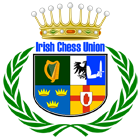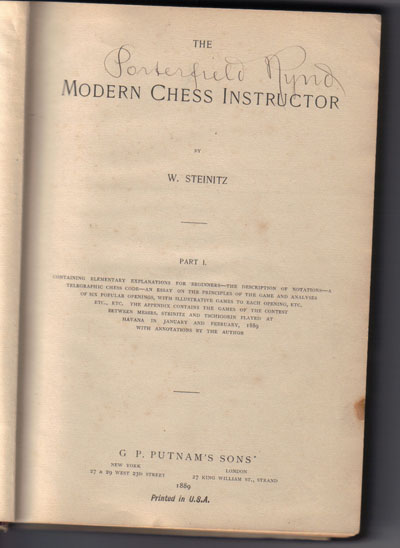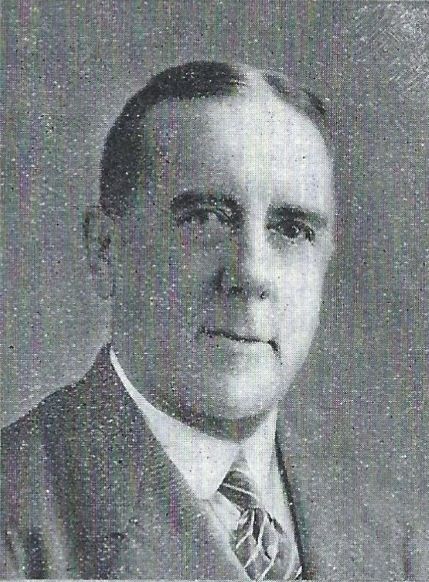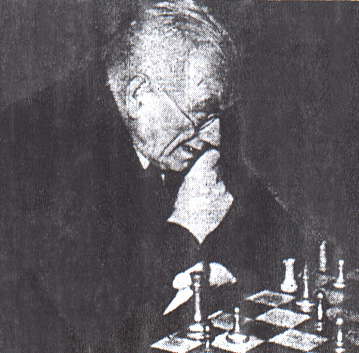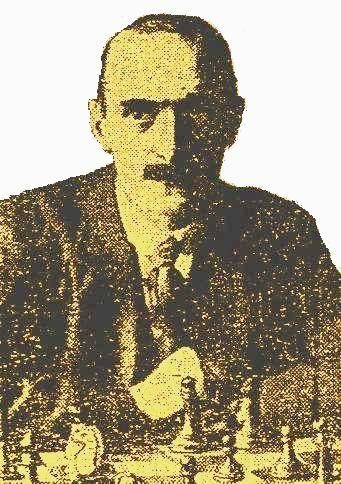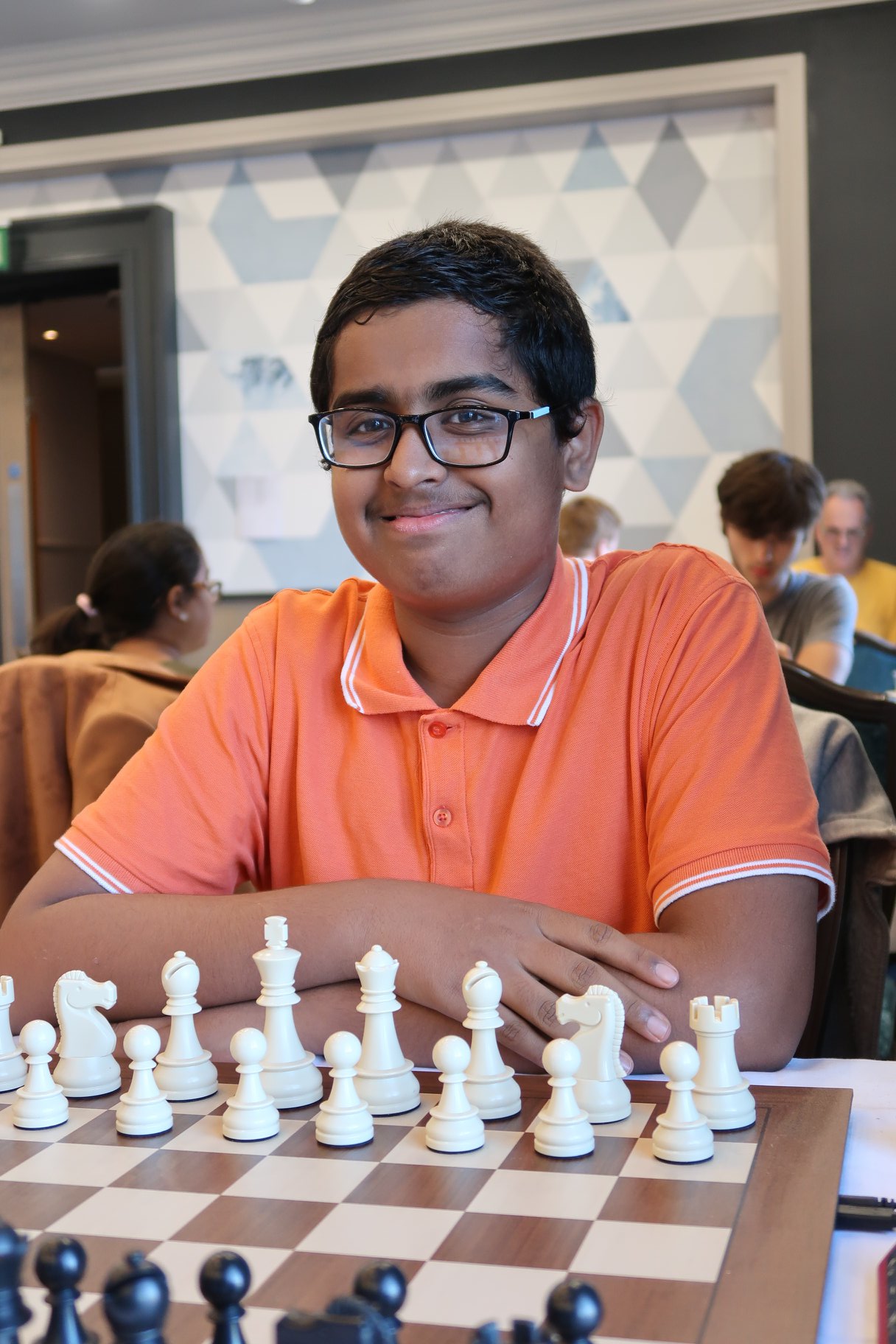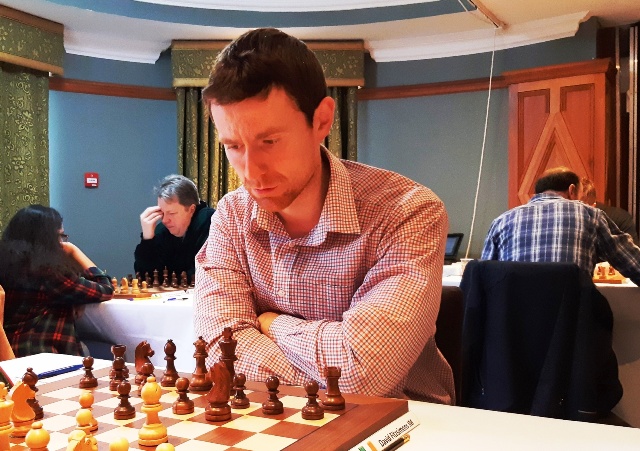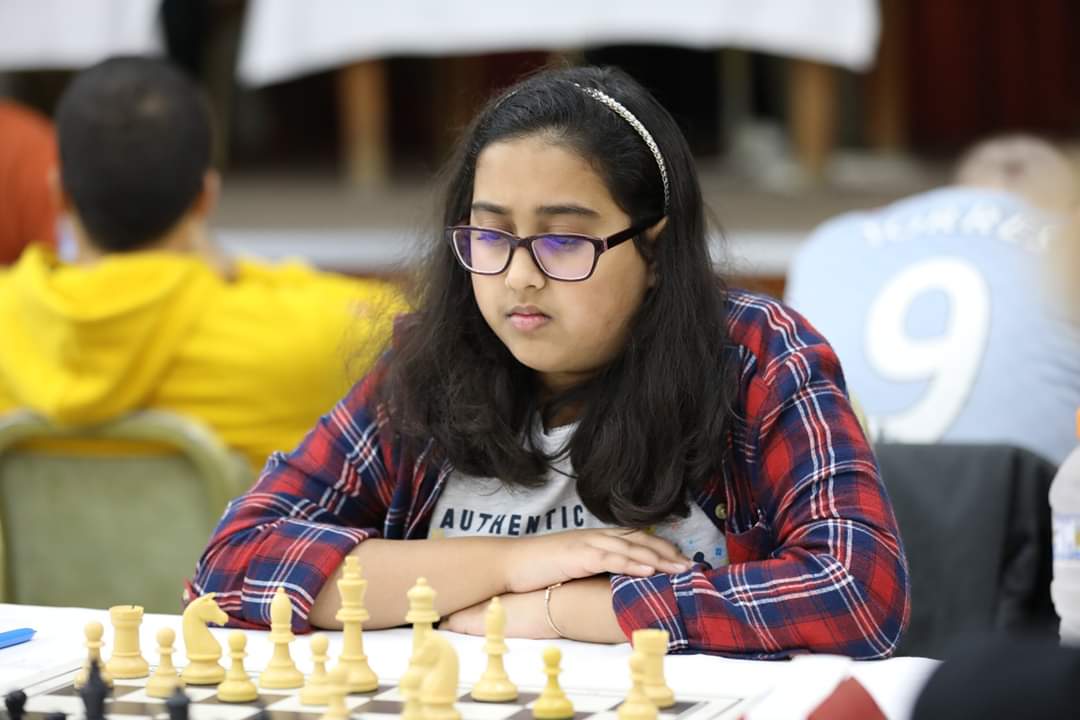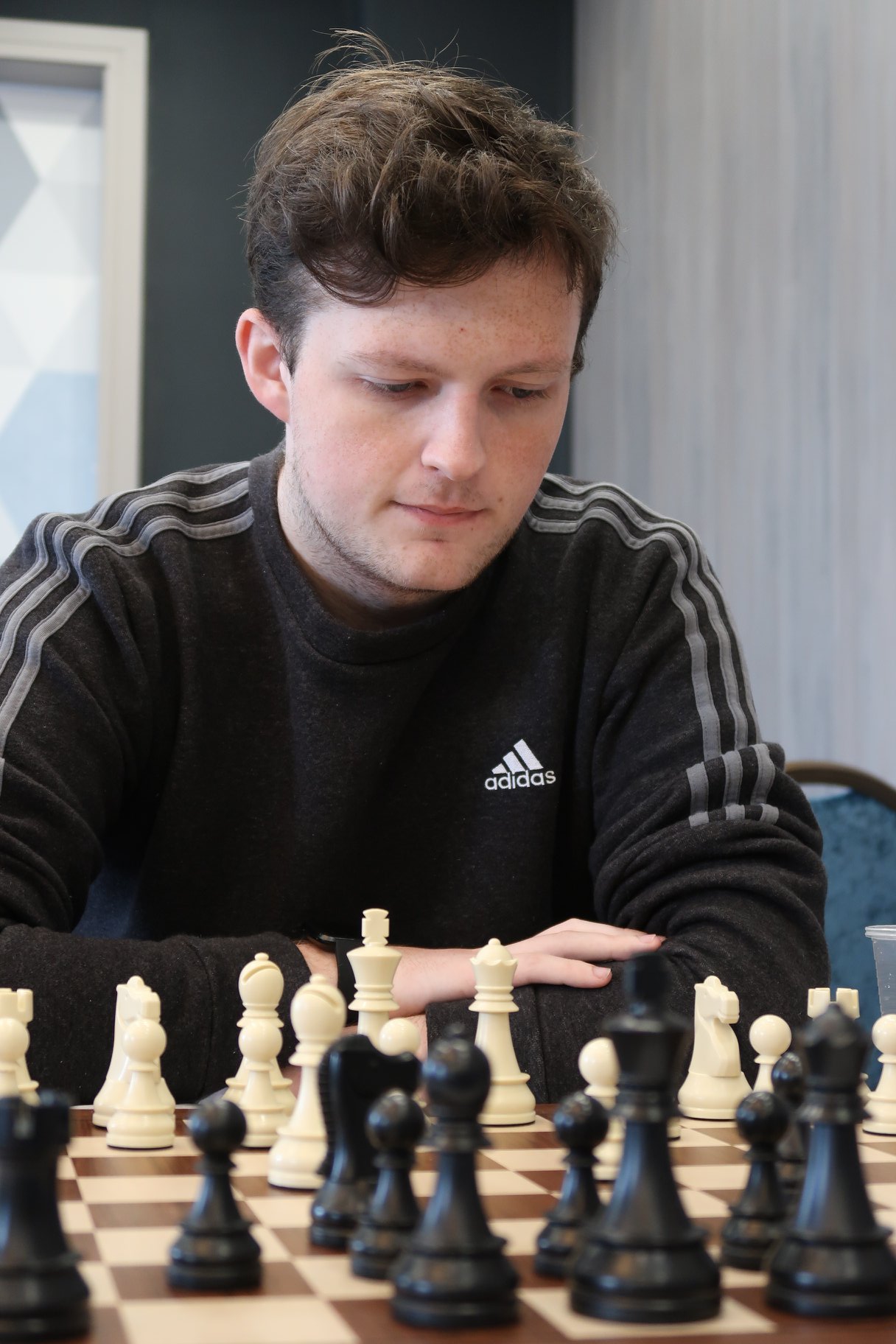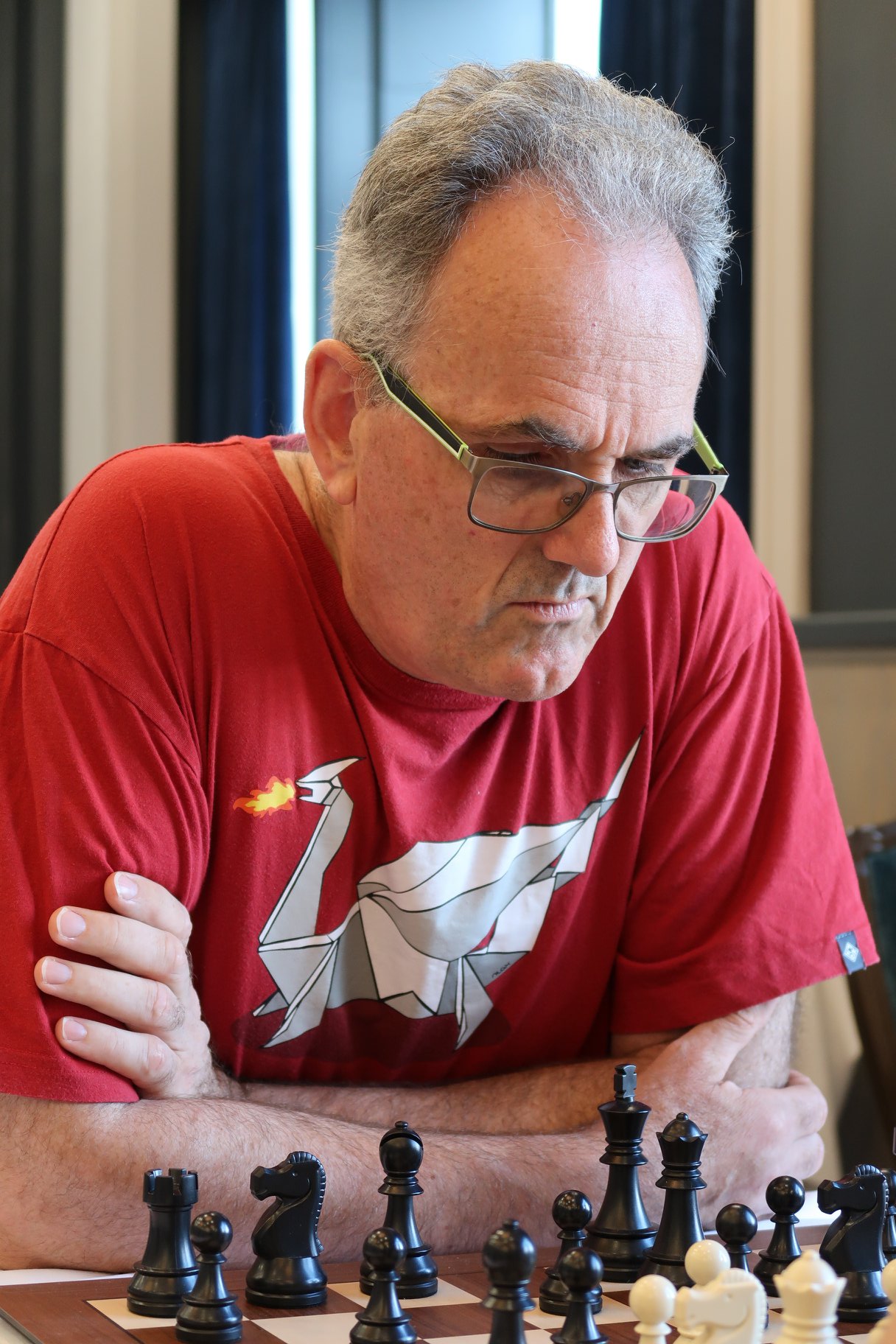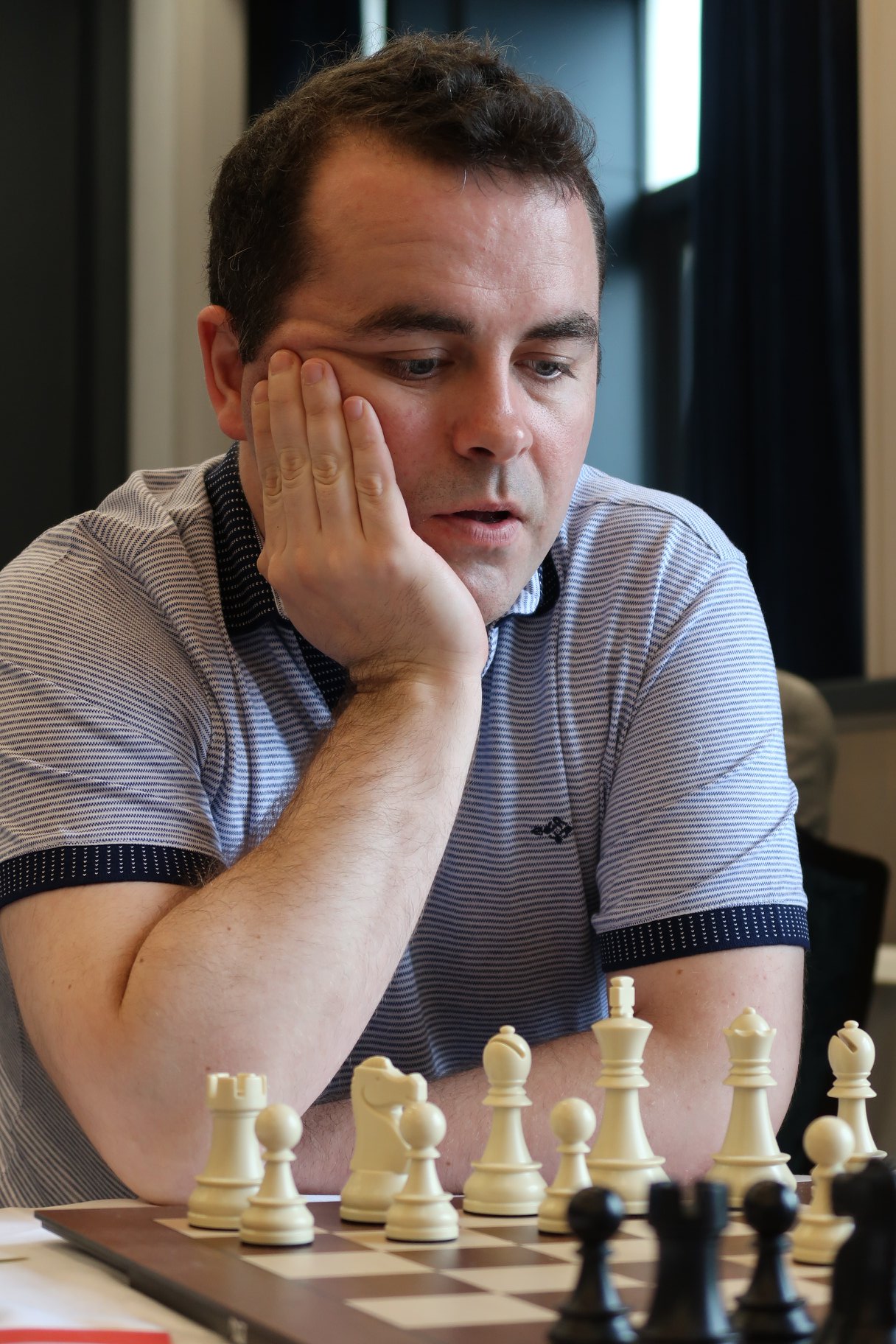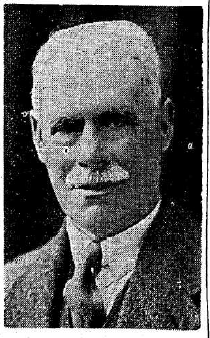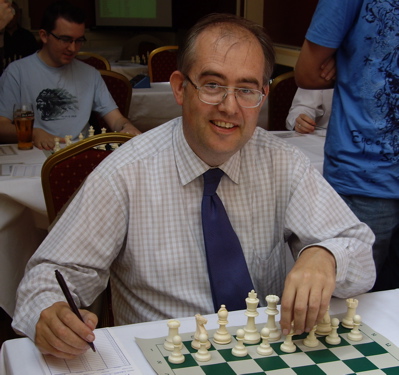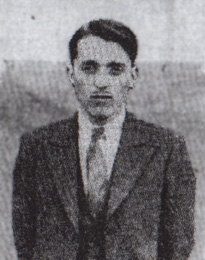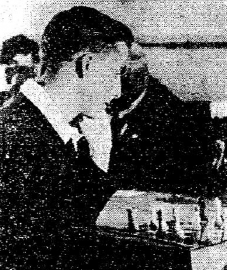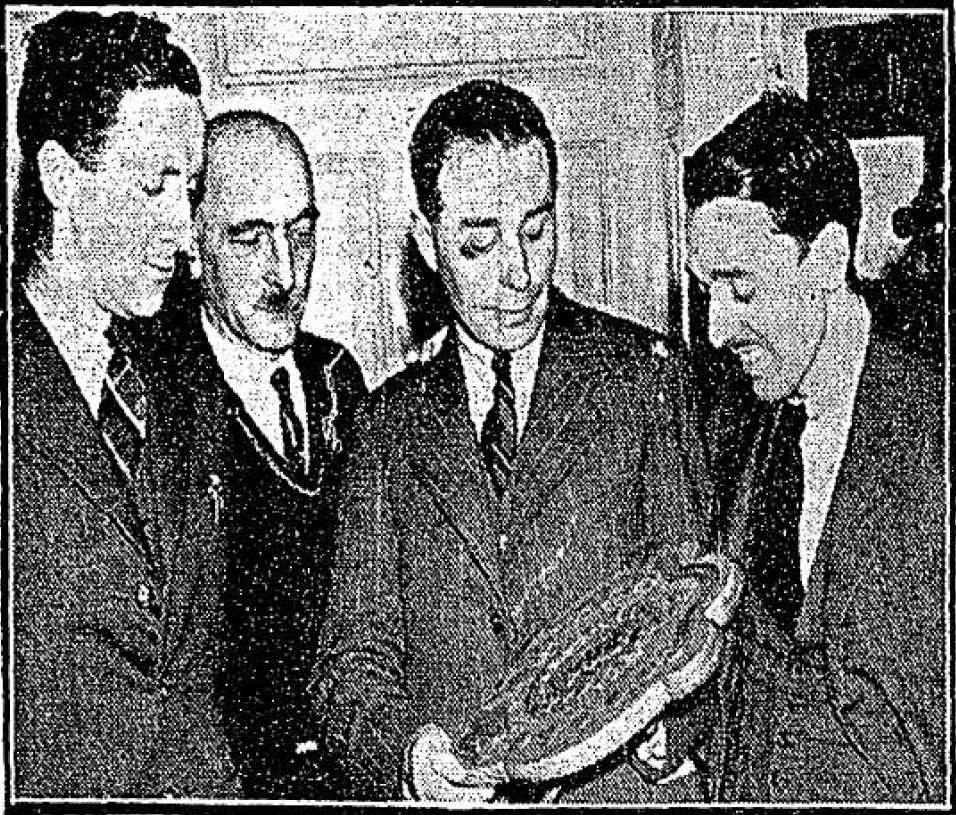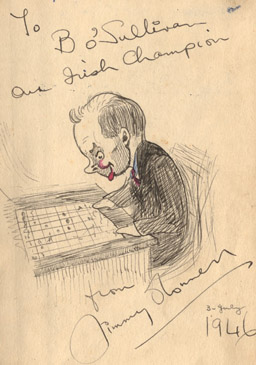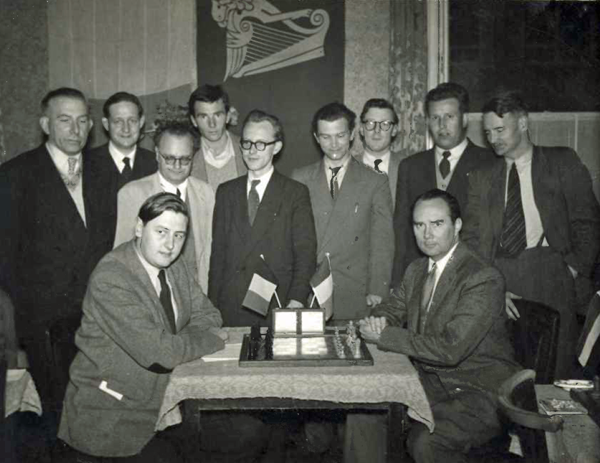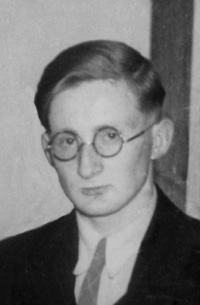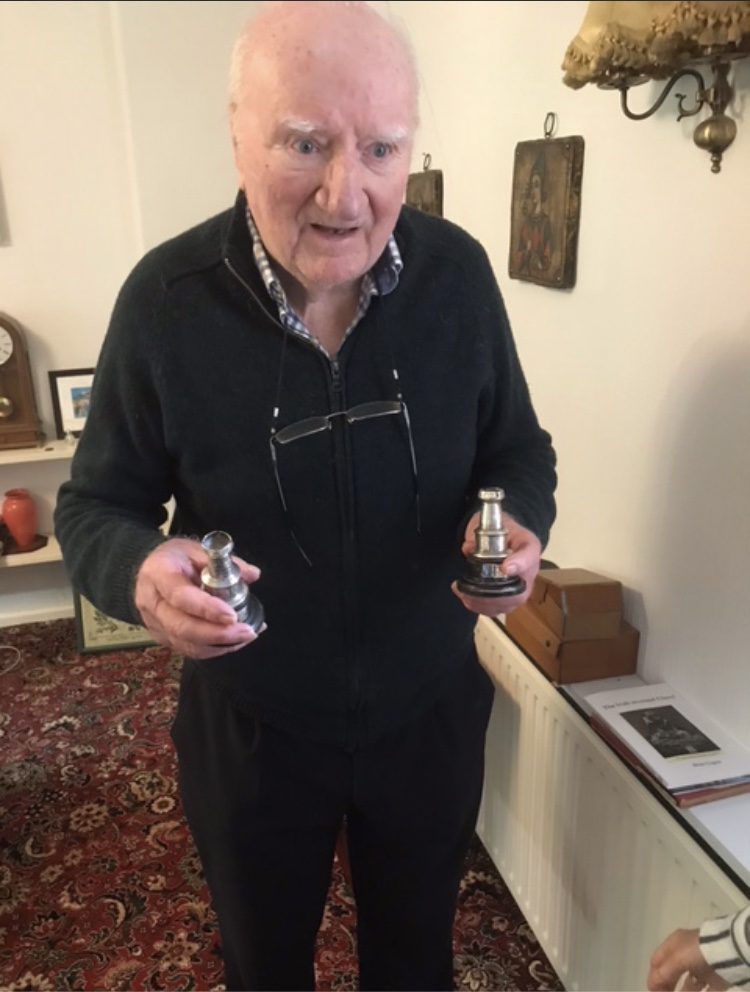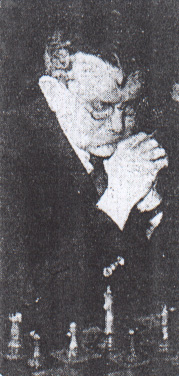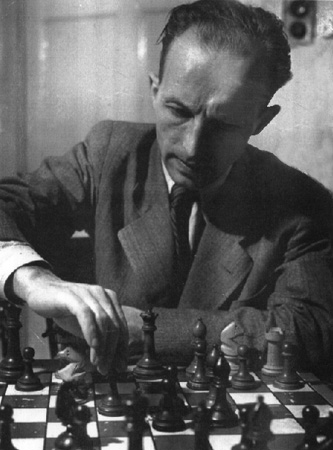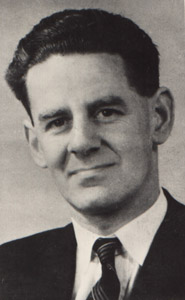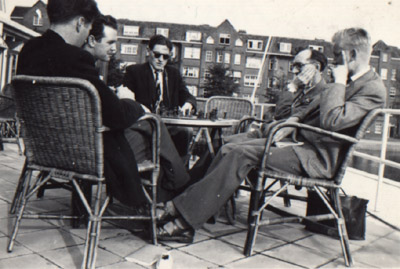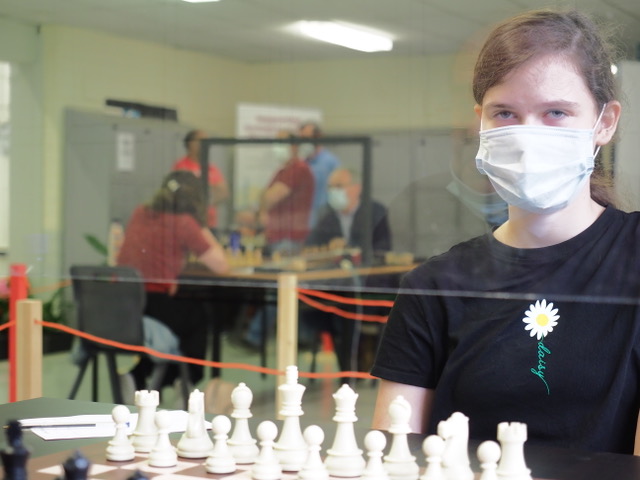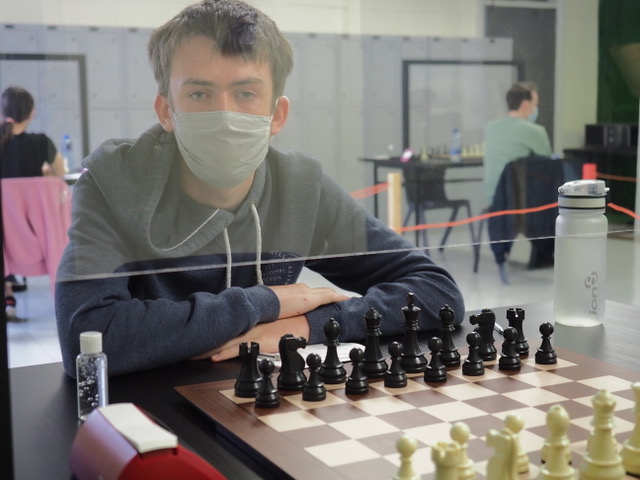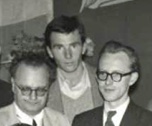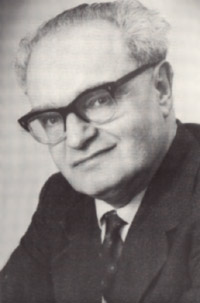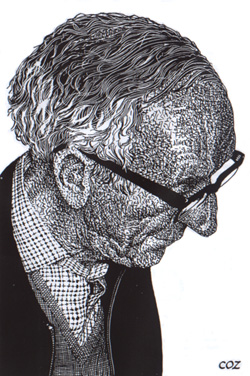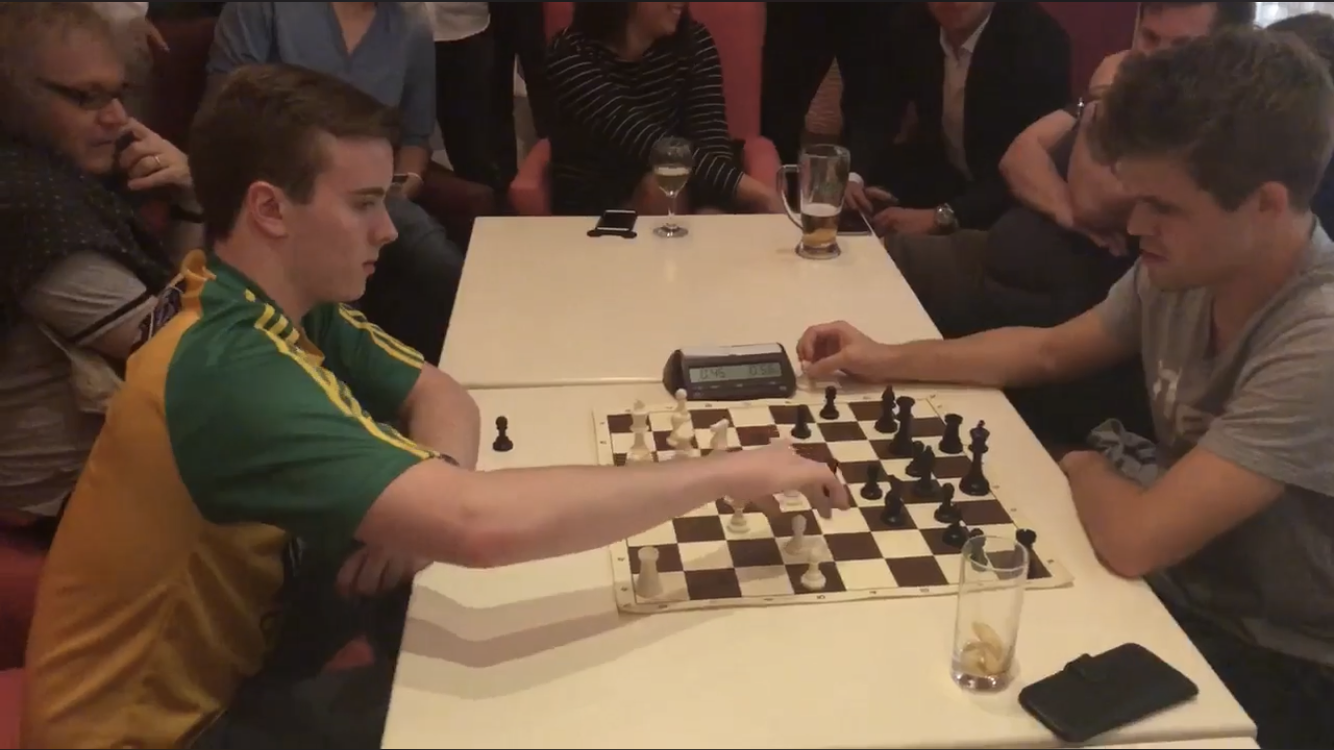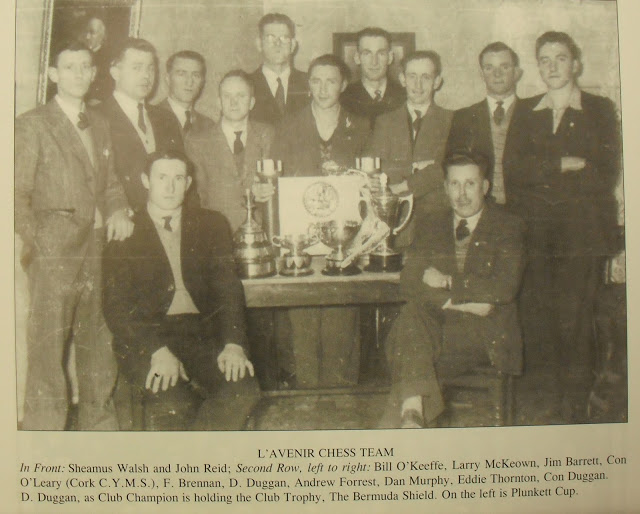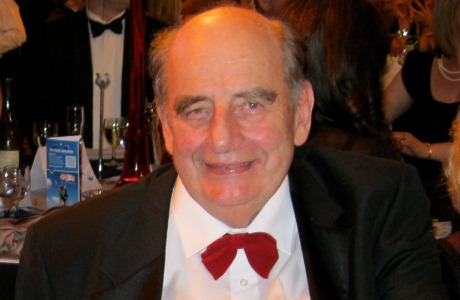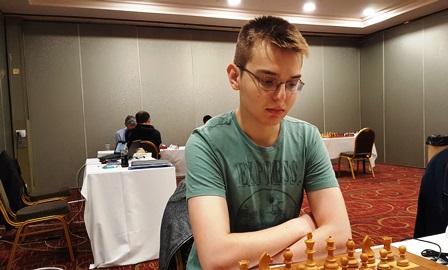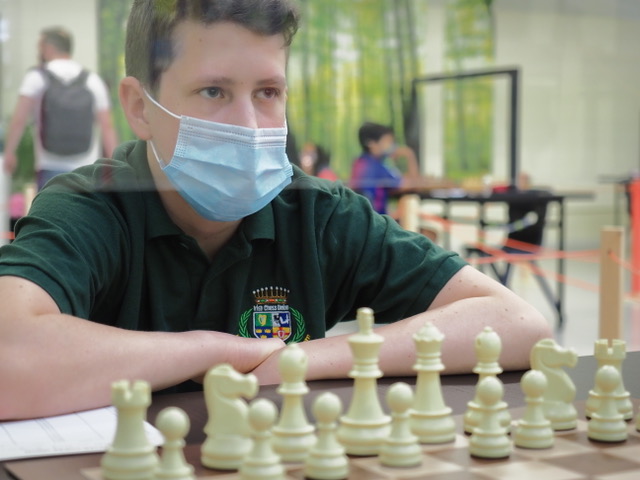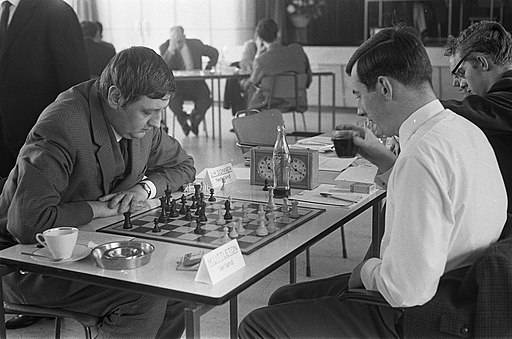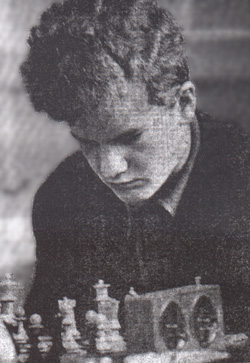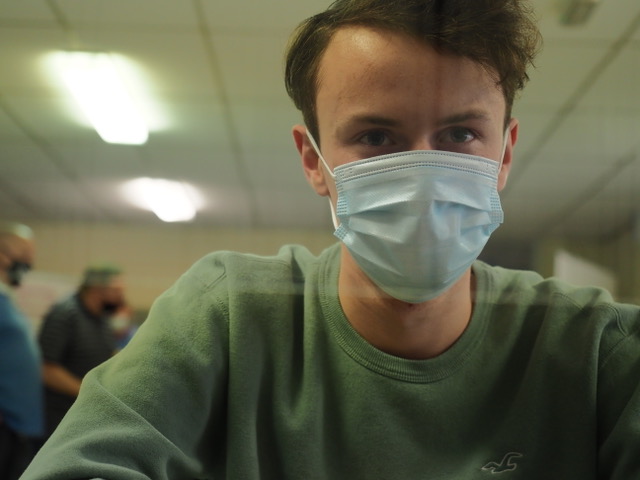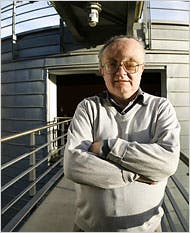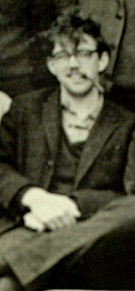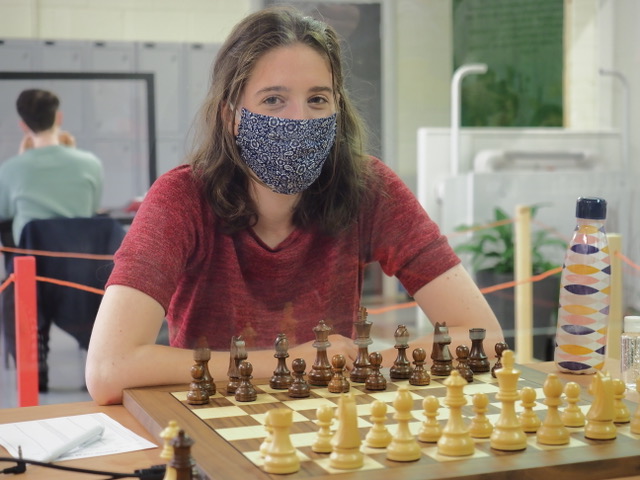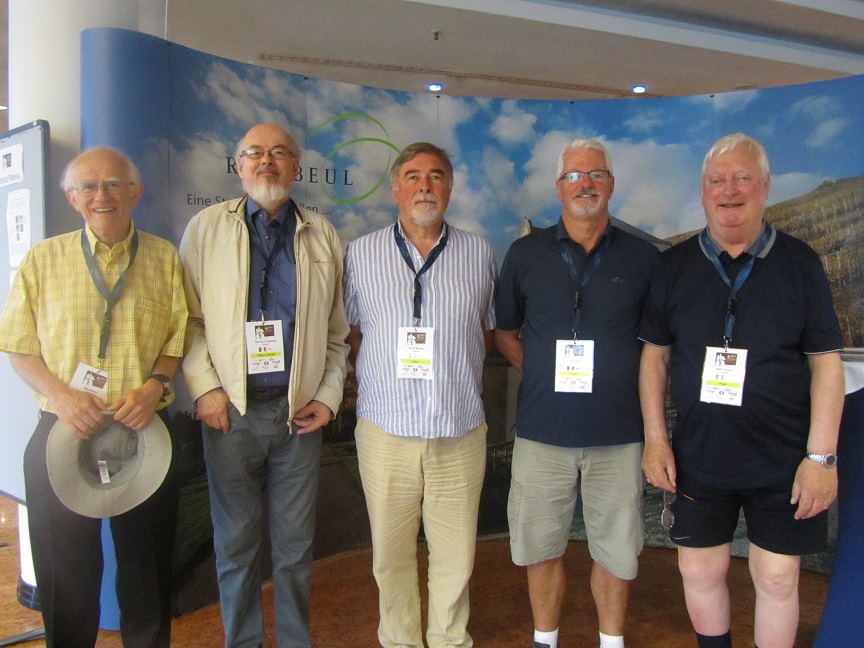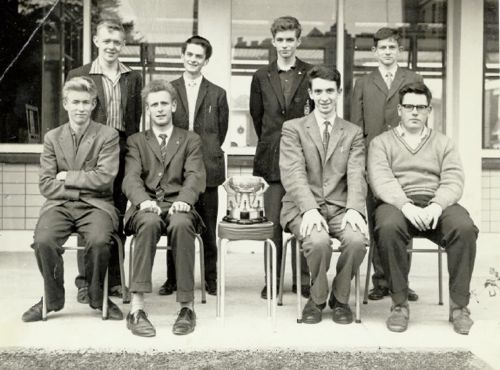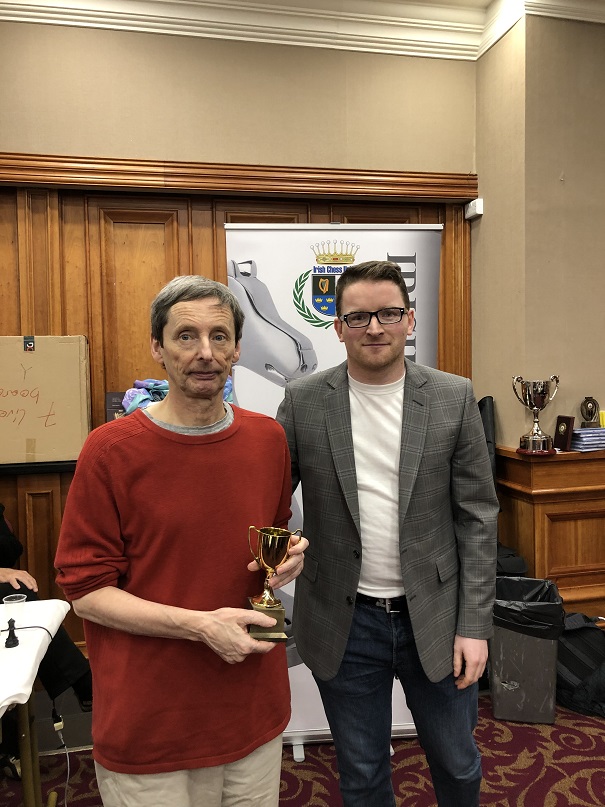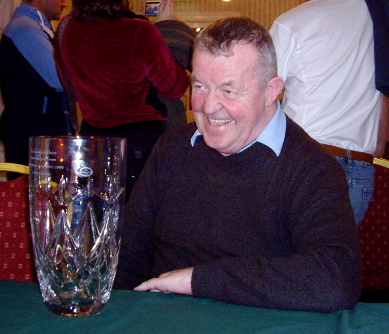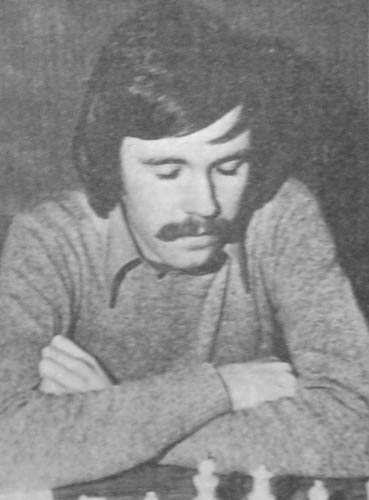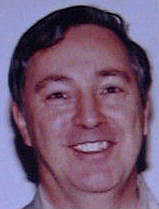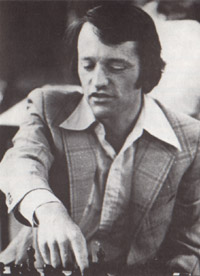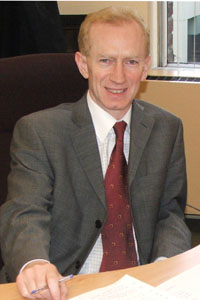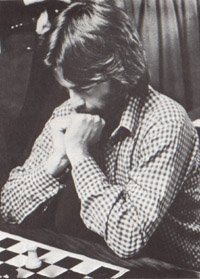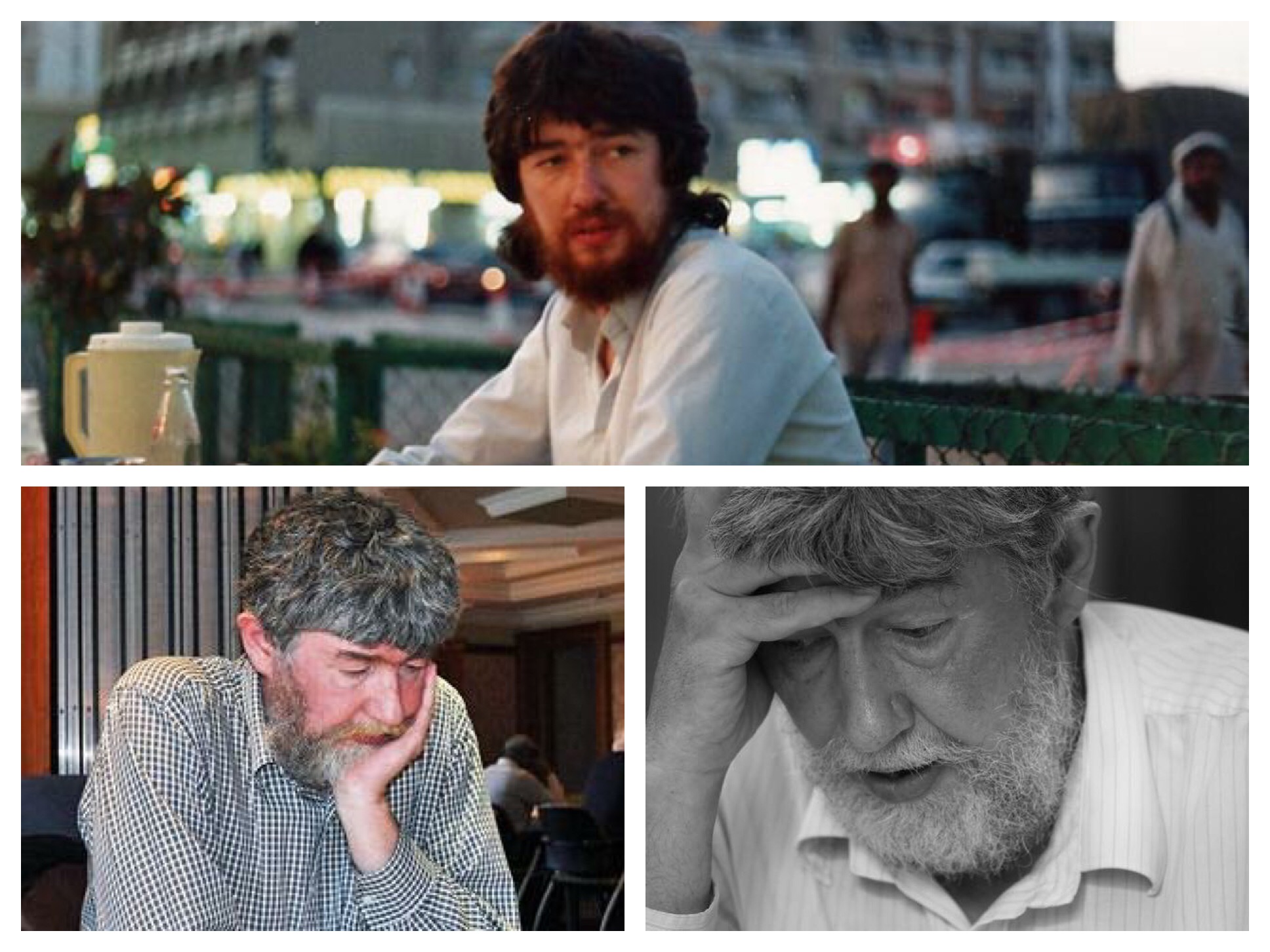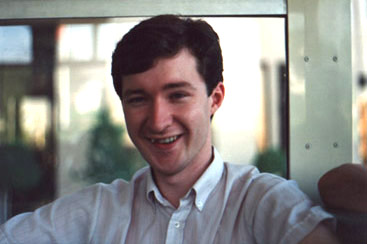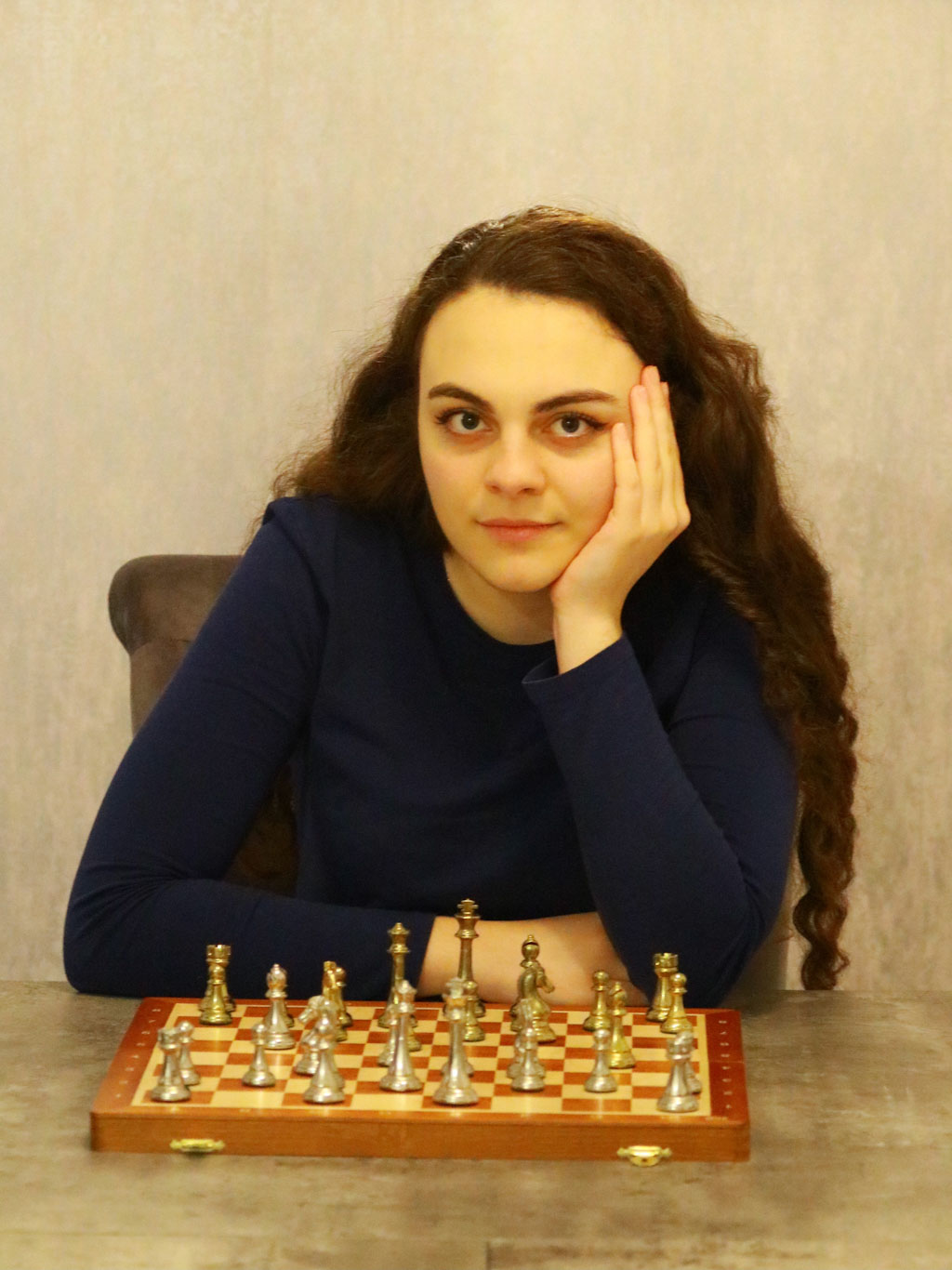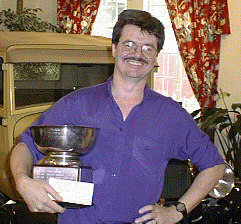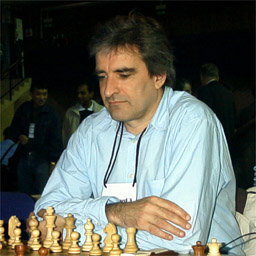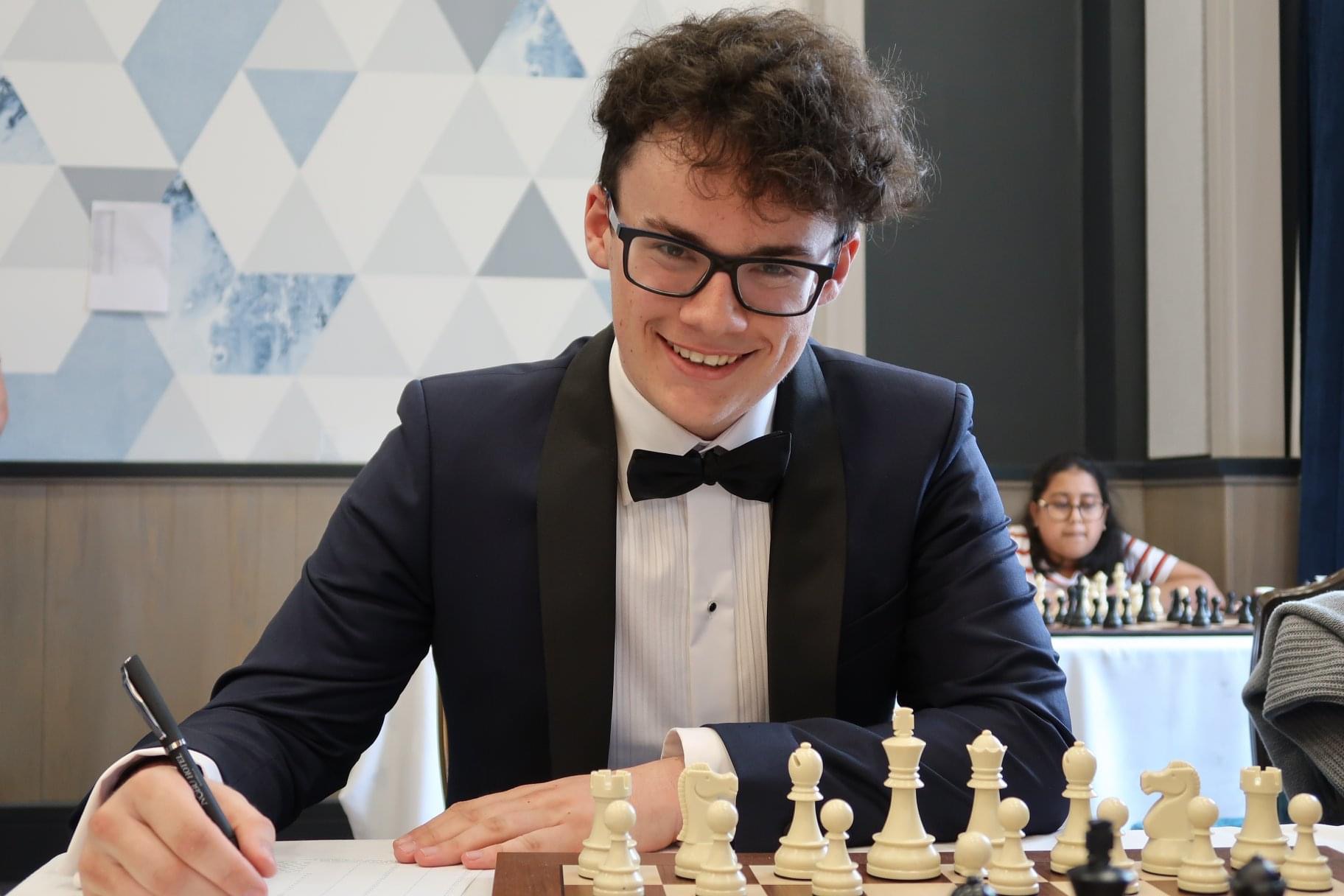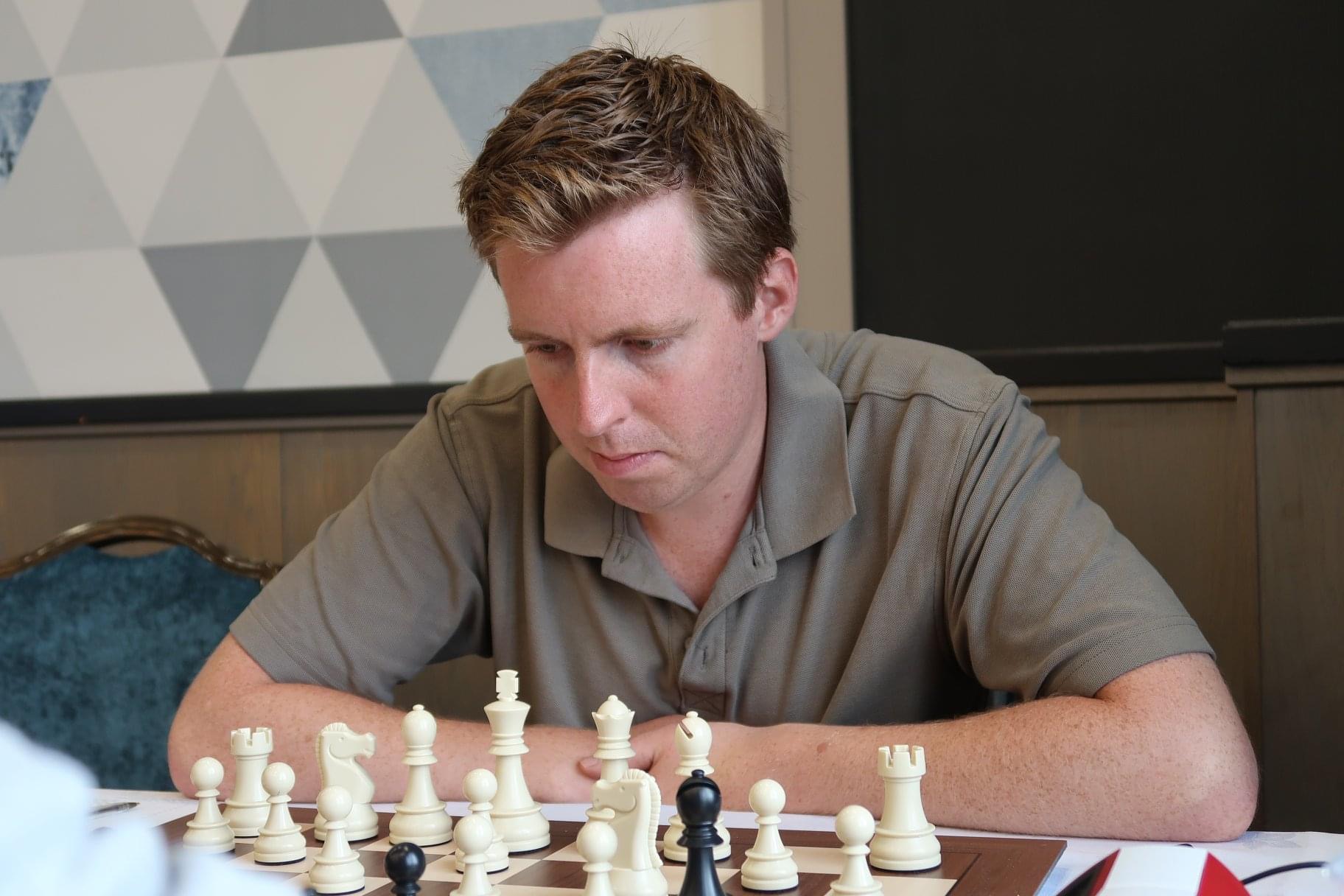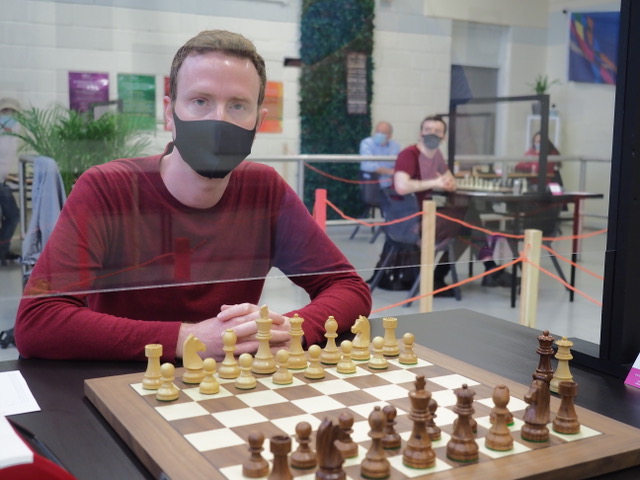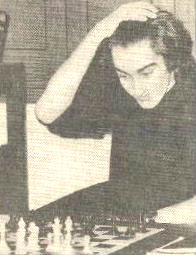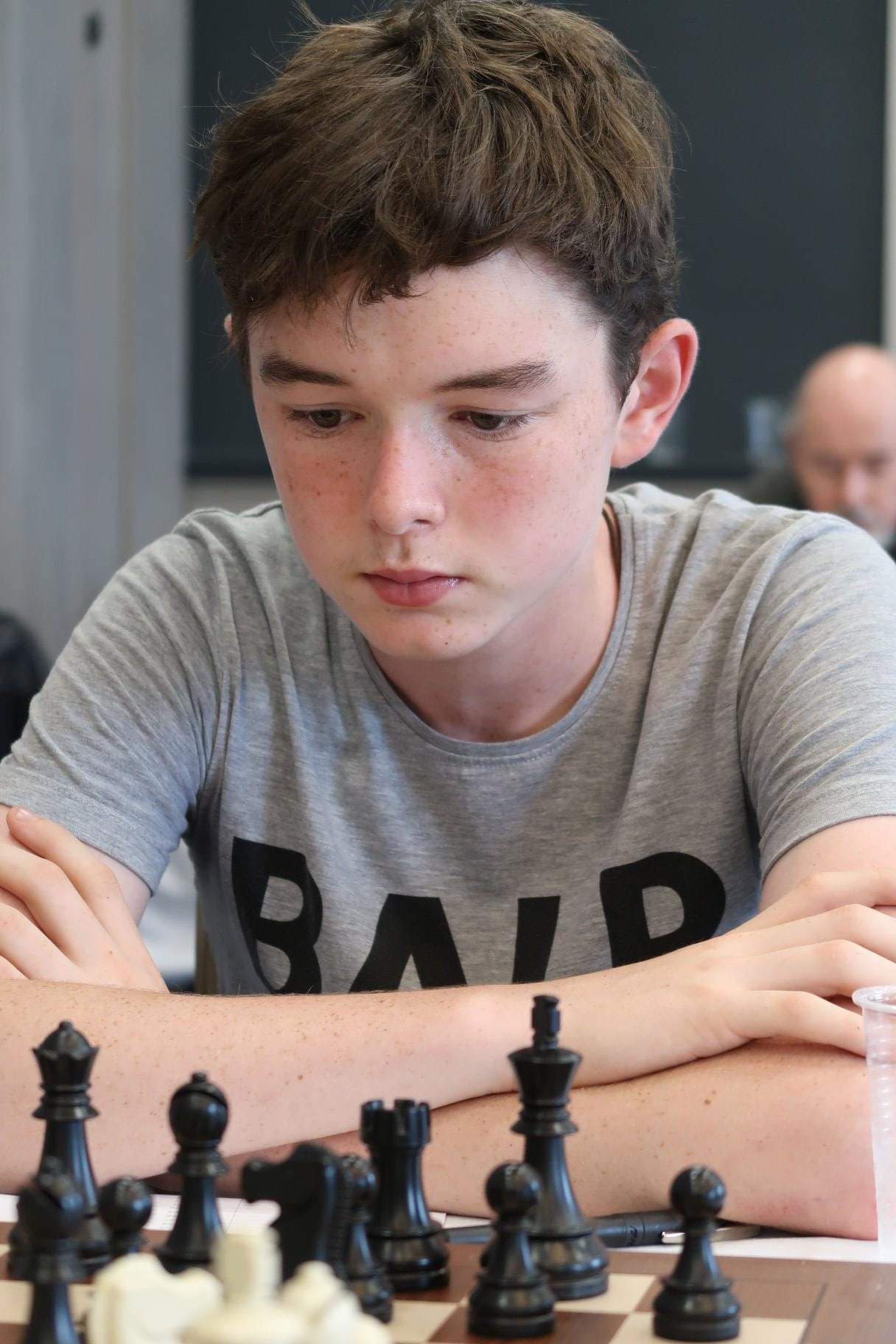We are coming up on 100 days to the 100th Irish Championship & this year we will be honouring our past winners with a look back at their triumphs day by day as well as previewing this year’s entrants. We will start all the way back in 1865 with what we regard as the first Irish Championship and move our way up through the years & decades to last year’s event. Along the way, we will profile the 49 champions, and some of the other roughly 520 players who have ever played in the Championship. The 1865 Irish may have been the first ever national chess championship anywhere (with apparently only events in the US in 1845 and 1857 as rival candidates) and we have now run 75 consecutive championships since the end of World War II.
We start our series by setting the scene for what we regard as the very first Irish Championship, which takes us all the way back to 1865. The Dublin Chess Congress of 1865, roughly nine lifetimes of our current champion Tom O'Gorman ago was a major international event organised in three sections. It was among the first international chess tournaments to show the standardization of international rules of play. It replicated London 1862 in having a time-limit and also a means of controlling the time. You can read more about the rules of that event here.
The first two sections in the event were won by future World Champion Wilhelm Steinitz (results; games) and the Rev. George Alcock MacDonnell (games) respectively. here.
100 (days to go): The First Irish Champion
With 100 days to go to the 100th Irish Championship, we arrive at our first Irish Champion who came from 1865's Dublin Chess Congress group which was "Open to Amateurs, bona fide Resident in Ireland for the 12 Months prior to 1st September 1865". The 18 player all-play-all was won by 19-year-old James Alexander (later 'Porterfield') Rynd, 1846-1917, later a Dublin barrister, chess journalist and organiser, and blindfold simultaneous specialist, who also won again in 1892. Rynd was probably the strongest active player in Ireland of the latter part of the 19th century by some margin, with a peak 'Edo' historical chess rating of 2361 in 1887." He would return to the board for a defense of his title in 1913, a full 48 years after his first title. However, on this occasion, he would come up short. He would have many more contributions to Irish chess in his life including the mooting of the Irish Chess Association in 1884, the invention of a chess variant “Diamond Chess” and his participation in the first ever Armstrong Cup in 1888. We're very fortunate to have one of his winning games from his first Irish win.
The results of the first Irish Championship can be seen here.
99 (days to go): The Irish back after 21 years
R.W.Barnett was the winner of the second Irish Championship which took place 21 years after the first edition and did not feature first winner, Porterfield Rynd who we spoke about yesterday. Details of that event can be seen here.
This event was open to non-Irish players and Barnett was declared Irish Champion by finishing as the highest place Irish player with a score of 4.5/8.
David McAlister has done the work for me here in giving a bio of Barnett here with some of his chess exploits.
He would later serve as an MP for 13 years and if you'd like to read more about his life outside (and inside) of chess, he has a Wikipedia page all to himself here.
98 (days to go): The 3rd Champion
George Daniel Soffe, c1859-1898, was the third Irish champion. In early 1889, championship was held in Dublin, and in the absence of Porterfield Rynd, briefly retired, the championship was wide open. The format was a handicap, in which only the players playing off 'scratch' were eligible for the title - the first and only time this format has been used in an Irish championship. Of the 31 players who entered, 10 played off scratch. The results of the final can be seen here.
Soffe played on boards 2 and 3 for Ireland, behind Pollock and Rynd, in correspondence matches against Yorkshire and Sussex in the late 1880s, and also played on the winning Phoenix team in the inaugural 1888-89 season of the Armstrong Cup. Sadly, ill health cut his career short. An example of his play can be seen in his game against Porterfield Rynd on board 1 of the very first Armstrong Cup match, played on 20 October 1888.
97 (days to go): The most talented not to win an Irish (yet)?
As discussed, Porterfield Rynd was the first person to win the Irish title more than once and as we’ve previously discussed him in depth, I’ll move to a preview of entrants for this year’s event for the first time.
IM Mark Quinn (2370)
After 25 years in the top tier of Irish chess, Mark will be intending to break his duck in the Irish at the fifth attempt. He’ll be coming back to the Irish again after playing in 2019 where prior to this he had had 10 years away from the event. Mark had his best finish in that event 12 years ago; hitting the podium with a joint second placing. Despite drastically scaling down the amount of chess he plays (and becoming a family-man in the meantime), Mark has still been involved in some top level events such as our bi-annual norm events. In one of these norm events, he defeated the legendary GM Igor Glek. He also consistently scores well on board one of the Armstrong league.
Will the 100th Irish finally be the one where Mark taps into his natural gifts to the lift the Irish trophy for the first time?
96 (days to go): A star is born
Following the formation of the Irish Chess Union in 1912, the Irish came back after a 21 year absence in 1913 with a new format where there was a preliminary event to which each province was entitled to send a representative, with the winner challenging the reigning champion; in this case: Porterfield Rynd – the 1892 champion. The 1913 championship would see the emergence of a force in Irish chess: John J O’Hanlon. O’Hanlon would defeat C.J.Barry in the preliminary round before seeing off Porterfield in the final in what was seen as a passing of the torch.
O’Hanlon would go on to win the Irish title 9 times in total from his 29 appearances. The years of those wins were the following: (1913, 1915, 1925, 1926, 1930, 1932, 1935, 1936, 1940; no championships held 1914, 1916-21 and 1941-45 so champion for 21 years)
We are very fortunate again to have games from that match against Porterfield Rynd in 1913 which you can see here.
95 (days to go): So near and yet...
O'Hanlon would go on to defend his Irish title in 1915, becoming the first person to do so. We'll carry on with our previews:
FM Conor O'Donnell (2331)
Conor had an up and down year in the 2019-20 season with a dominant performance to win the City of Dublin, backed up by a share of the St Andrew’s title before things went a little awry. Still, it says something for a player like Conor when a year where you win two titles is considered a disappointing year.
However, that’s because in each of the previous 4 years, Conor had added another string to his bow in his progression to the top tier of Irish chess. 2015: claimed the FM title. 2016: made his first Olympiad appearance. 2017: crossed 2400 for the first time. 2018: two IM norms in Irish events and other near misses. In terms of his chances for this event? Conor has always been able to turn it on for the Irish and has been pipped to the title on a number of occasions. Last year, he suffered a couple of early defeats before storming back to win his final three games for a share of second. He came closest of anyone to defeating eventual champion, Conor Murphy, in 2019. In fact, Conor has finished in order: 3rd, -, 3rd, 2nd, 7th, 2nd over the past 6 years - where he was within a move of the final round of finishing first in the year he finished 7th.
Suffice it to say that the man has unfinished business in this event and will be determined to claim his first Irish at the seventh attempt. Conor can check two big boxes off his to-do list if he wins this Irish: his first Irish title and his third and final IM norm to become Ireland's latest IM, but can he do it?
94 (days to go): O'Hanlon dethroned (twice)
In 1922, Thomas George Cranston managed to dethrone O'Hanlon who had held the Irish title since 1913 and all of the games from that year's championship are available here.
An article appeared in the Belfast Newsletter about Cranston's win.
Cranston appeared in 6 Irish Championships in all, beating O'Hanlon twice in the final match 3-0; his second and last title coming in 1931.
O'Hanlon did get his revenge with an epic final in 1932 which went all the way and more. After 5 games, the match was evenly split on 2.5-2.5. In the sudden death play-off, played in 1933, O’Hanlon won the second game leaving the final score as Cranston 3.0-4.0 O’Hanlon.
93 (days to go): Baker's Reign
Philip Baker, 1879-1932, was the sixth Irish champion. He was born in Riga, then part of the Russian Empire, and seems to have fled the pogroms of the era as a young man. Around the turn of the century, he lived in Tralee, where he worked as a draper. After moving to Dublin in the early 1900's, he played in the Armstrong Cup for the Jewish C.C. and later for Sackville.
In 1924, he snuck by J. J. O'Hanlon in the match to decide the challenger. The decisive game appears to have been snatched from the latter with a one-move tactic from what was a very comfortable position (my computer indicating that the evaluation swung from +4.5 to -3.5 which was enough for O'Hanlon to immediately throw in the towel): https://www.icu.ie/games/13614. The final was another tight affair with the best of five match finishing ½-2½ before Baker won the first game of the sudden death playoff. He also won the inaugural Tailteann Games.
Baker would play in just six Irish Championships in all; winning four of them in 1924, 1927, 1928, and 1929. He remains the only player to have won three consecutive Irish championships.
92 (days to go): Sitting T.D. Finishes Joint First
William Edward Thrift finished joint first with O'Hanlon (who was awarded the title when Thrift couldn't play the playoff) in 1925. Thrift even defeated O'Hanlon during the event on his way to an undefeated score of 5.5/7. Thrift was Provost of T.C.D. and elected from that constituency and served up until around 1937. NB: it really was the Dail--the move of that constituency to the Seanad didn't come in until the new constitution in 1937.
Thrift also finished second in 1892. You can read more about him here.
91 (days to go): Ireland's Top Junior
O'Hanlon hit back to win his third Irish title in 1925 so we continue with our preview:
FM Tarun Kanyamarala (2369)
Tarun made his Irish Championship debut just two years ago as the 18th seed but exploded onto the Irish chess scene over the next year and started last year's event as 2nd seed after gaining 239 points in that 12 month period. 57 of those points came via the 2019 Irish itself where Tarun claimed the scalps of IMs David Fitzsimons and Mark Quinn and backing those wins up with a draw against top seed Sam Collins. Last year, he got hit by the one-two punch of Gonzaga duo Conor O'Donnell and Sam Collins but he did earn a draw against eventual champion, Tom O'Gorman, and his score was good enough for a fifth place finish.
Elsewhere, Tarun has had several notable results including claiming the Limerick Open title, sharing the Cork and St Andrew's titles, but arguably most remarkably, finishing tied first in the ultra-strong Gonzaga Classic with a final round win over 2600+ GM Georg Meier.
Whilst Tarun was a bit of an unknown quantity two years ago, the top players will have plenty of experience against him now and vice versa. Tarun is also one of the hardest studiers in Irish chess and who knows what his rating would be by now if OTB chess wasn’t put an ice in March 2020… Will this mean Tarun comes out swinging after a year plus of practice or will this mean his rating progress was stunted? Time will tell but Tarun is certainly one of the favourites this event.
90 (days to go): Ireland's latest IM
O'Hanlon added to his haul with a fourth Irish title in 1926 so we continue with our preview:
IM David Fitzsimons (2324)
David came into last year's event with his highest rating since early 2018 and whilst he didn't have things go his way, he still finished with a seventh place finish. This is David’s third appearance in a row at the Irish and this year he is one of several International Masters in the field which may take some of the pressure off.
Up until 2015, David was a long-time regular of the Irish Championship with his last 4 finishes in consecutive years being: 4th, 4th, 3rd, 3rd – the latter two being his best finishes to date.
David’s best performance prior to the pandemic arguably came in Bunratty where he was on the top boards throughout, eventually finishing in joint second place. As well as that, David also had an excellent Gonzaga Classic, scoring draws against GMs Tiviakov and Lalic.
89 (days to go): Ireland's first WIM
Baker would take advantage of O'Hanlon's absence in 1927 to claim his second Irish title and as we've discussed Baker previously, we will continue with our preview:
WIM Trisha Kanyamarala (2180)
Trisha will be making her third Irish appearance this August after an excellent debut in 2019; a performance which earned her her second WIM norm. Her best result was undoubtedly her win against IM Mark Quinn but she also beat her brother Tarun on the way to a 5/9 finish. She would match that score in 2020 but she may have hoped for more in a smaller field.
Trisha earned a third WIM norm (and thereby qualify for the WIM title) with a dominant display at the New Year Norm events 2020, winning the event and finishing on 6.5/9 – which was also enough for a WGM norm but just 0.5 shy of an IM norm.
Trisha became Ireland’s first WIM last year and will have her sights set on even bigger goals once we get back to regular OTB chess. In a year full of accolades, it could also be forgotten that Trisha also claimed the FM title this year – making her one of the youngest ever Irish players to do so.
Trisha has shown the ability to pick up steam during an event and put together a string of wins in a row which makes her a definite danger in this year’s Irish. But will she be able to take the next step up and claim her first Irish title?
88 (days to go): The Irish Regular
Baker would successfully defend his title in 1928 and claim his third Irish title so we will continue with our preview:
CM Shane Melaugh (2161)
Shane Melaugh, will be returning for his sixth Irish Championship; having played the last 5 years - one of only 3 to do so. In 2018, Shane had a top 10 finish but things didn’t go quite so well the last two years; finishing just outside the top ten last year.
Shane’s highlight of 2019 is likely his demolition job in the Elm Mount Club Championships where he finished on a remarkable 9.5/10 which gained him 84 FIDE rating points and 60 ICU points.
He backed that up with a terrific performance at the Irish New Year Norm events where he finished just 1 point shy of an IM norm, gaining 35 points in the process.
Shane was unfortunate that his FIDE K factor dropped at just the wrong moment as he looked to be pressing for the FM title before that drop stunted his progression but with 20 K we still expect him to be back hammering on that door very soon.
87 (days to go): The 50+ Champ
Baker would make it three-in-a-row in 1929 and earn his fourth Irish title defeating Creevey for the second year in a row in the final match so we will continue with our preview:
Jonathan O’Connor (2153)
The 2020 Irish 50+ Champion (his second 50+ title in 3 years) will be playing in his third Irish Championships in as many years.
Two years ago, he had a very nice win against Henry Li in round 2 which he backed up with a draw against GM Alexander Baburin in round 3. His score of 4/9 is not very reflective of his strong performance as he was playing higher rated opponents for much of the event.
Jonathan's Irish in 2020 was cut short by a snap lockdown where he'd be progressing nicely with a score of 3.5/7 including draws with Killian Delaney and Trisha Kanyamarala.
86 (days to go): The Late Bloomer
O'Hanlon finally unseated Baker in 1930 after his 3-year reign as Irish Champion. They played in the final match of 1930 with each aiming to become the first person to claim 5 Irish titles with O'Hanlon winning 3-1. Sadly, this would be Baker's last Irish and he would pass away in 1932. With those two champions discussed in depth, we move forward with our previews:
FM Killian Delaney (2300)
2019 was a breakthrough year for Killian Delaney – smashing through the 2300 barrier for the first time, securing the FM title in the process and almost claiming his first IM norm with some scintillating play, eventually coming just half a point short. Killian's meteoric rise can maybe only be matched by current Irish champion, Tom O'Gorman, and the Kanyamaralas as he's backed up his rating gains month after month on his rise to the top.
He is the current Irish number 14 and his top performance came in the ECC with a 21 point rating gain and some excellent results. However, the Irish has not be happy hunting ground for Killian in recent years and he’ll need to reverse that form if he wants to compete for the title.
Killian came close in the 2016 Irish - eventually finishing third - and he will fear no one having secured results against many of the players currently entered. But will Killian be able to use his excellent form to put 9-rounds together and really push for the title?
85 (days to go): The State of Play
O'Hanlon's third spell as champion did not last long as he was defeated by Cranston in 1931 in the final match which was Cranston's second title as we've previously referenced. We'll discuss Cranston's title defense in 1932 tomorrow but for now, we'll discuss the field for the 100th Irish as things stand:
The Field as of May 7th
Our field stands 34 strong, with 6 further applications for wildcards, which is already more than our 32 entries last year. Incredibly, 10 of our entrants are past Irish Champions. From a titles perspective, we have 1 Grandmaster, 4 International Masters, 1 Woman International Master, 8 FIDE Masters, 1 Woman FIDE Master and 3 Candidate Master so there will be IM, WGM and WIM norms possible at the event. Our current field is as follows with past winners in bold:
Collins, Sam E. IM 2456
Baburin, Alexander GM 2416
Murphy, Conor E FM 2394
Quinn, Mark IM 2370
Kanyamarala, Tarun FM 2369
Heidenfeld, Mark IM 2360
O`Donnell, Conor FM 2331
Fitzsimons, David IM 2324
Delaney, Killian FM 2300
Brady, Stephen FM 2292
Daly, Colm FM 2285
Ryan, Joseph FM 2271
Doyle, Anthony 2206
Delaney, John FM 2191
Kanyamarala, Trisha WIM 2180
Melaugh, Shane CM 2161
O'Connor, Jonathan 2153
McMahon, Daire FM 2115
Carroll, Peter CM 2059
Venkatesan, Kavin 2011
McMorrow, John 1997
MacElligott, Gerard CM 1966
Cafolla, Peter 1958
Peoples, Jonathon 1953
Keogh, Eamon 1944
Tirziman, Rudolf 1941
Mirza, Diana WFM 1933
Lyons, Brendan 1931
Quigley, Colm 1924
O'Gorman, Alice 1907
Aherne, John P. 1903
Collins, Adam 1887
Nolan, Conor 1884
O'Flaherty, Kevin 1884
84 (days to go): Our Sponsor
Defending champion and two-time title holder, Thomas George Cranston would lose his title to O'Hanlon in 1932 in an epic final which finished 2.5-2.5 after the best of 5 match. In the sudden death play-off, played in 1933, the first game was drawn before O'Hanlon won the second game and thereby claimed his sixth Irish title. Cranston would not play again until 1938 - where he would finish third in his final Irish appearance. 1932 marks the end of a period of dominance stretching back to 1913 for three players: O'Hanlon (6 titles), Baker (4 titles) and Cranston (2 titles). While Baker and Cranston's tallies of titles would end there, O'Hanlon was not quite finished yet. However, as we'll hear more about those titles in the coming days, we'll discuss one of our supporters for this year's event.

Blackthorne International Transport
Once again, Blackthorne International Transport will sponsor the marquee event on the Irish chess calendar; most recently sponsoring the 2017 and 2018 Irish events. Their support has enabled us to ensure norm possibilities for our top untitled players for the first time in IRL-only Irish Championships and also bring in commentary teams to cover the event. We can't thank them enough for their continued support and must single out ICU member Gary O'Grady for helping us in this regard. Its no surprise that the events they have supported have been among the most competitive and had the largest entries in the history of the Irish Championship.
83 (days to go): The Seventh Champion
James C. Creevey, 1873-1967, was the seventh Irish champion. At the time of his win, he was President of Cork C.C., and his win marked the first time the title had gone to a Munster nominee. He won again in 1934, before losing his title in a rematch against O'Hanlon in 1935.
82 (days to go): Supporting Events
Creevey would retain his title in 1934, and would face O'Hanlon in a title rematch against O'Hanlon in 1935... More on that tomorrow.
In the meantime, we are officially opening entries for our two main supporting events:
The 100th Irish Championships 2021: First Weekender
The 100th Irish Championships 2021: Final Weekender
These events will hopefully ensure we are able to host events for every standard over the summer months with the Challenger for those from unrated to 1300, and the Major for those rated between 1300 and 1900 while of course the 9-day Irish Championship is reserved for those rated over 1900 (FIDE or ICU).
81 (days to go): New Irish Team Championship Event
O'Hanlon would add another trophy to his cabinet in 1935 taking his tally to 7. He defeated defending Champion Creevey 3-2 in the final match with the crucial game below. https://www.icu.ie/games/13836
This gives us a chance to announce our new event for this year's Irish. While we hope we've covered all ratings with the supporting events we announced yesterday, I think many of us miss our clubmates and playing alongside them in pronvincial leagues or the National Club Championships. With that in mind, and while we can't quite guarantee the running of an NCC with up to 100 players, we've decided to create a new event: The National Team Championships. In this event, teams will be made up of four players with 3 ideally coming from the same club. The fourth player will be selected by the team captain from a group of elite players who will play on board 1. This board will be eligible for norms, while also contributing points for their adopted team. Finally, the event will be sponsored by Chessable with podium finishers claiming free memberships (normally priced at $75 each) for themselves and their clubmates to add to their national title.
80 (days to go): O'Hanlon's 8th title
O'Hanlon faced a new threat to his crown in the final match of 1936 with Tom Cox entering the fray and making his way through the preliminary round. O'Hanlon was able to fend off the man 36 years his junior and took his eight title with a 3.5-1.5 victory but Cox would be back for another bite at the cherry in 1937.. For now, we continue our preview of the 100th Irish with one of nicest gentlemen currently on the Irish circuit:
Gerry O'Connell (2051)
Gerry will be playing in his 28th Irish Championship this year which is currently the fifth most all-time. He hasn't had the best form in recent Irish Championships but look out for him to continue his trend of finishing faster than he starts as in two of the last three years he's finished with 3 wins in the last four rounds. Despite not having recent form in the Irish, Gerry has had a top 5 finish as recently as 2012 so we cannot rule him out of a strong tournament even in this ultra strong field.
79 (days to go): The Meteoric rise of Thomas Cox
Tom Cox 1912-1939, who learned the game of chess just 4 years previously, would take revenge for his defeat in 1936 and claim his first Irish title in 1937 in an all-play-all event. Sean Coffey has prepared a wonderful bio of the man on his site; a terrific talent who was taken too young by illness. From beginnger in 1933 at 21 years of age, to Leinster Champion in 1936, to Irish Champion at 1937 and 1938 with his passing coming at just aged 27 after he'd been selected for the Irish Olympiad team.
We are again fortunate to have the crucial game in his title winning run in 1937 - coming against reigning champion O'Hanlon with the black pieces: https://www.icu.ie/games/13888
Although I've listed that as the crucial game, Cox was taken to a playoff by Oscar Aiden Quigley with the former taking the title with a 3-2 win. As Cox would retain his title in another all-play-all in 1938, we'll write a short piece on Quigley.
78 (days to go): Quigley's near miss
In 1938, Cox would retain his Irish title - holding off competition from his 3 predecessors: O'Hanlon, Cranston and Creevey who would finish 2nd-4th. As promised, we'll use today to write about the man he beat to the 1937 title in a playoff.
Oscar Aidan Quigley would only play in 2 Irish Championships and would officially come away with 2 second place trophies but in 1937, he did finish tied with Cox after the initial rounds with only a playoff eventually separating the two men. After 1937, he largely left Irish chess for a career in the Royal Air Force and flew for them during WW2, but returned to Ireland in 1951 after his retirement and won the Leinster Championship in 1953.
77 (days to go): A new King
Barney O'Sullivan would win his first Irish in 1939 seeing off two previous champions (Cox and O'Hanlon) in a 10 player all-play-all. We are fortunate to have a picture from that prizegiving where Barney (center-right) is flagged by the two players who finished in joint second, Cox (right) and Gerard Kerlin (left) with Cranston (center-left) presenting prizes as Hon. Secretary of the ICU.
Several notes have been written about O'Sullivan by his peers which you can read here.
O'Sullivan would lose to O'Hanlon in the all-play-all but still came out on top with a score of 6.5/9. https://www.icu.ie/games/13935
76 (days to go): Our next supporting event
O'Hanlon would win his 9th and final title in 1940 with a score of 4.5/7 in an 8 player all-play-all. O'Hanlon was certainly not done with the Irish playing a further 10 championships after the war - for a grand total of 29 championship appearances in all. His title in 1940 would also mark the first time a player would win a title in 4 different decades. As we've spoken about O'Hanlon several times given his 9 titles, we are delighted to take the opportunity to announce our latest supporting event..
The Irish Weekday Open 2021 will return after a year absence and runs from August 2-6 in Colaiste Eanna. The event takes place each weekday before the The 100th Irish Championship 2021 itself. Enter here. We felt this event was needed as we will not necessarily be able to accommodate everyone in our main event with a 48 entry cap.
75 (days to go): First post war Irish.
The Irish was back in 1946 after a pause for World War II with Barney O'Sullivan claiming his second title. He held off stiff competition from Quigley who finished half a point behind on 11/13 in this 14 player all-play-all. This was O'Sullivan's final title but he would play in 3 further championships up to 1953.
The 100th Irish Championship 2021 continues to see lots of entries, so much so that we've had to set a cap on the numbers we can accommodate given what we expect to see in terms of government restrictions in July/August. We have already blitzed past the record number of entries for the Irish with still over 2 months to go with no let up in sight and so after consultation with our venue we have set the upper limit on entries at 48 with currently 45 committed to playing the 100th Irish. We will reevaluate and discuss the situation with our hosts throughout the summer but for the moment we will shut entries once they hit 48 and open a waiting list. We hope you can understand this decision and look forward to seeing you all in Colaiste Eanna in July!
74 (days to go): Paddy Duignan
Paddy Duignan would comfortably win the 1947 Irish Championship scoring 11/13 in another 14 player all-play-all. His nearest rival, Nash, finished quite a ways back on 9.5. Duignan played every Irish between '46 & '50 before primarily switching over to bridge but 1947 was his only title. This win marked the starting point of an era of first time winners with 8 first time winners in a row!
Enda Rohan would have this to say about Duignan: "Paddy was principle officer in the Department of Posts and Telegraphs. He piloted through my case for leave without pay to go to the 1954 Olympiad in Amsterdam, establishing a precedent for the Irish Civil Service. Along with his friend Jackson he founded the Civil Service Chess Union and both of them were involved in the organisation of the Irish and Leinster Chess Unions. However, as a result of sniping from Donal O'Sullivan at a general meeting of the Leinster Union, both withdrew from organisation completely.
Paddy was a hard working and committed organiser who gave me great support which I valued. He was also a strong player when at his best and won the Irish championship in 1947. Ten years later he won his game in the Ireland-Scotland international."
73 (days to go): Dónal J. O'Sullivan wins his first title
Dónal J. O'Sullivan won the first of his three title in the 1948 Irish Championship scoring 6/8 in a 9 player all-play-all. O'Sullivan is pictured above on the far of this group of players from the 1956 An Tóstal chess tournament. An Tóstal was a celebration of Irish culture with the intention of drawing tourists into Ireland in the 1950s. Among the events were a series of chess tournaments in the years 1953-1957. In 1954, 1955 and 1956 an International Masters event was held while in 1957 a FIDE World Championship Zonal was the centrepiece of the chess events. O'Sullivan would play in 10 events in all between 1947 and 1957.
72 (days to go): P.B. Kennedy
Paddy Kennedy played in just 2 Irish Championships, winning on his debut in 1949. Not only that, but he won with a perfect score of 7/7 in a 16 player open; a full 2.5 points ahead of his nearest rival. From reading through his bio written by his son, you get the impression that Kennedy was a savant and equally impressed accross several fields including mathematics (where he was a professor in York University), chess (where he was clearly naturally gifted) and music (where he learnt difficult pieces on the piano with relative ease). An obituary for Paddy Kennedy 1929-1966 appeared in the Times after his premature passing.
71 (days to go): Vincent Maher
I'm delighted to have finally reached 1950 as this means I can talk about the first champion who reach out to me directly. It was a fantastic surprise to hear from Vincent Maher and he did so just to wish the ICU and all of our participants the best of luck with the 100th event. He also attached a picture of himself with his 1950 and 1955 Irish trophies which have pride of place in his home. He crushed the field in his first win with a score of 7.5/8; winning by a full 1.5 points.
Vincent Maher started played chess at age 13. From 1946 to 1952 he studied medicine at University College Dublin and won the Irish Universities Chess Championship three times during that period. He participated in the Irish Chess Championships 9 times in all and played in 2 Chess Olympiads for Ireland.
From 1956 Vincent Maher worked in the British Army Medical Corps as a medical officer. After returning from the army he worked in Manchester. In 1961, Vincent Maher won the Manchester Chess Championship.
70 (days to go): P. M. A. Bourke
Austin Bourke 1913-1995 was the 1951 champion with a score of 6/8, holding off competition from many future and former Irish champions like O'Hanlon, Mulcahy, O'Sullivan and Maher. This was the last of Bourke's 5 Irish appearances, going out on a high as champion. His bio is well worth a read as Dr Bourke was the unchallenged authority on the epidemiology of phytophthora infestans, the potato blight that precipitated the events of 1845-47, and was, in the wider sense, an agricultural meteorologist of world repute.
You can play through a selection of Bourke's games here.
69 (days to go): M. J. Schuster
Michael Schuster 1919-1989 won on his debut in the 1952 Irish Championship with a score of 7/8 and like Bourke the year previous; he held off several champions including O'Sullivan, Maher and O'Hanlon. Schuster would play in just one further championship in '53 but would continue to play chess regularly in his local club, Dublin CC. We are lucky to have another fantastic bio for Schuster, including details of his escape from Prague in the 40s, which was written by his brother John here.
You can play through a selection of Schuster's games here.
68 (days to go): E. N. Mulcahy
Noel Mulcahy 1929-1968 was the 1953 champion with a score of 6/8, taking the title on tiebreak from Vincent Maher. Mulcahy played in 9 championships in all and upon his death, the Munster Chess Union honoured him by naming an annual event in his name. His bio is taken from a booklet of his games which was also created at that time by the MCU.
You can play through a selection of Mulcahy's games here.
67 (days to go): Terry Kelly
Terry Kelly was the 1954 champion with a score of 7/8, taking the title ahead of Mulcahy, O'Hanlon & O'Sullivan. Kelly played in 3 championships in all & represented Ireland in the Amsterdam Olympiad before emigrating to Canada where he would eventually own & run his own fashion business. His bio includes a reference to his obituary in the Toronto Star where his title win in 1954 is proudly listed from his early years in Ireland.
You can play through a selection of Kelly's games here.
66 (days to go): Vincent Maher wins again
Maher would get revenge for his loss on tiebreak to Mulcahy in 1955 by turning the tables in 1955 and winning himself on tiebreak from the very same man; again, both finishing on 6/8. With Maher claiming his second title, this finally marked the end of an 8-year-era of first time winners & so we can get back to our preview of players for 2021:
Lara Putar (1930):
Since this time last year, Lara is the most improved player in the country, shooting up to her current rating in a series of outstanding performances both home and abroad, as well as boasting the highest improvement at last year’s champs (+162).
Lara is fast becoming a serious force to be reckoned with, and might well pose a challenge to Ioana’s women’s title streak, as well as the championships itself.
65 (days to go): D.J. O'Sullivan claims title number two
8 years after his first title, Dónal O'Sullivan would double his haul by winning the 1956 Championship with a terrific score of 7.5/8; narrowly holding off William Stanton who finished on 7. We'll see how O'Sullivan did defending his title in 1957 tomorrow but for now we'll preview another of Ireland's most improved players in 2019-2020.
Adam Collins (1887):
One of the rising stars of Irish chess, this wonderkid is dead set on emulating his namesake’s career path, with his performance at last year’s championships earning him 145 points. However, this is almost overshadowed by his online performances at the weekly blitz events, where Collins, boasting a lichess blitz over 2300, could be seen declining berserk offers, putting children in their place in the live chat, and easily beating players who'd comfortably outrate him OTB. A serious dark horse in this year’s event though, as 2021 could see Adam rise to the upper echelons of Irish chess elite.
64 (days to go): D.J. O'Sullivan claims third title
O’Sullivan claimed his 3rd & final title in 1957; this time on tiebreak from William Dunphy with both finishing on 6/8. We’ll dedicate today to Dunphy who has an interesting chess career.
Hastings Chess Club site has a bio for Dunphy which we’ll build on.
William Richard Dunphy (known as Bill) was born on 5.9.1929. On the basis of his strong finish in the ‘57 Irish, he was invited to represent Ireland in the Moscow Olympiad. He also competed in a strong tournament in Madrid in 1957. In these three events where he played against masters his best result was a draw against Jan Hein Donner, arguably the best player in Holland .
In 1974, he won the Hastings club championship. Earlier that year Bill had taken over the position of Congress Director. The Hastings and St Leonards Observer of 4.1.1975 reported that Bill had had his hands full with the organisation of the Congress and the telephone rang incessantly. He was also a keen cricketer. He passed away in 1985.
63 (days to go): Wolfgang Heidenfeld enters the fray
1958 marked the arrival of a an all-time great of Irish chess, with Wolfgang Heidenfeld 1911-1981 claiming his first title. When all was said and done, Wolfgang would have one of the best hit-rates in terms of titles versus appearances - playing in 9 championships & winning 6 of them. He also won the South African championship 8 times and held both the Irish & South African titles simultaneously in 1958. He was an incredibly talented player and had wins over many top players including Max Euwe, Najdorf and Durao.
We have a large collection of games in our database here.
62 (days to go): Brian Reilly
Brian Reilly was the 1959 champion with a score of 6.5/8, a clear point ahead of the field. We would say more but Brian himself has written a wonderful piece on his life, inside and outside of chess, which you can read here: https://www.icu.ie/articles/72 including his struggles & eventual internment during WW2, the many Olympiads & major events he attended, and his purchase of the British Chess Magazine. He would go on to play in 11 Irish Championships.
61 (days to go): Brian Reilly wins again
Brian Reilly would win again in 1960 with a score of 7.5/10 in an all-play-all & so we'll move on to preview one of the stars from last year's event:
Jonathon Peoples (1960):
Peoples had an excellent 2020 Irish and more impressively has recently graduated from actuarial studies in UCD and so is well set on his path to becoming Ireland’s next billionaire. Aside from his unquestionable knowledge of maths, JP is also world renowned for being the first chess player to take on Magnus Carlsen in a blitz game, whilst wearing his county GAA jersey. Also, he gained over 100 points in last year’s outing.
60 (days to go): John Reid wins his first
The 1961 title was won by John Reid with a score of 7.5/10 in an 11 player all-play-all. Reid was a Garda who was part of the L'Avenir team (pictured - with Reid sitting on the right) of the 1950s which you can read more about here: http://tony-chessaddict.blogspot.com/2015/11/lavenir-chess-club-c.html. Reid was also the Plunkett Cup winner in 1952-53. The Plunkett Trophy was presented to the Cork Chess Association for annual competition for the Championship of Cork. Prior to the establishment of a specific South Munster Championship in the mid-1950s, the winner of the Plunkett Trophy would play a match with the North Munster Champion for the title of Munster champion.
59 (days to go): J. Reid #2, M. F. Littleton
1962 was an unprecedented Irish at the time with 4 players finishing joint 1st; 3 would go on to or had won the Irish previously & 2 would officially share the title (Reid & Littleton) but we will discuss the 4th man: Alex Montwill. Montwill was playing in just his 2nd (& what would turn out to be his final) Irish after a 6th place finish in 1961. Thankfully, we have a fairly full biography of Montwill thanks again to Sean Coffey over on IRLchess
We can see in this article that Montwill was yet another player who was forced to flee the continent during the War, having been born in Riga in around 1935. He was able to move to Ireland thanks to an Irish family heritage and had a brief career in chess before switching to bridge. He was a well know physicist and a Professor of Experimental Physics at UCD. He passed away in 2013.
58 (days to go): Heidenfeld's 2nd title
Heidenfeld would win his second title in 1963 in his second appearance - & so I'll hand over to ICU PRO Sam O'Neill for a preview:
Rudolf Tirziman (1941):
They say that “time waits for no man”. Rudolf however, either isn’t human or doesn’t care what they say, as the Blanchardstown man is infamous for his long grinds to the death in every match, no matter the position or opponent. And just when you think his flag will fall, Rudolf will abuse the life out of the increment on the clock, making his opponents wish they hadn’t skipped on lunch until after the round as he grinds them into a pulp.
57 (days to go): Heidenfeld wins two in a row
Heidenfeld won his 3rd title in 1964 - & so I'll hand over to ICU PRO Sam O'Neill for a preview:
Leon Putar (1918)
Not to be outshone by his sister’s progress, Leon also spent 2020 shooting up the ranks home and abroad, and still maintains a higher fide than Lara.
Again boasting a strong performance at last year’s champs, Leon will be looking to build on his previous success and could be another dark horse this year.
56 (days to go): Michael Littleton's 2nd title
Michael Littleton won his 2nd title in 1965 with a score of 6.5/8, a full point clear of the field. He was an Irish regular with 14 appearances in all and also played in multiple Zonal events; he is pictured playing Jan Donner in the 1966 Zonal Tournament in The Hague.
Littleton passed away in 2002 & an obituary appeared for him in the Irish Times which detailed his exploits in both chess & bridge as well as his passion for public service broadcasting and his leading role within RTE.
55 (days to go): J. L. Moles
John Moles won the 1966 Irish with a score of 6.5/8. Moles was Professor of Latin, a lecturer at Newcastle University & previously served as head of the classics department at Durham University.
Moles was the founder of Histos in 1997, an early example of on-line journal of ancient historiography. His first two books were devoted to chess but he will be remembered especially as a classicist of penetrating intellect and unusual range, who never spared his efforts on behalf of fellow scholars, particularly those of a younger generation.
John was twice the Ulster chess champion while at the Royal Belfast Academical Institution, twice Irish Champion & a member of the Olympiad team in 1970 and 1972. He passed away in 2015.
(editor shortcut error: 1503 is not a valid image ID)
54 (days to go): Heidenfeld wins 4th title
Heidenfeld won his 4th title in 1967 on tiebreak from Paul Henry with both men finishing on 6.5/8 - & so I'll hand over to ICU PRO Sam O'Neill for a preview:
Luke Scott (1959):
Leaving aside his career breaks to play Magic the Gathering tournaments, the former TCD chess captain has seen a marked rise in recent leagues performances, despite his hiatus from competitive chess tournaments since 2019. This magician could pull the rabbit out of the hat in this year’s Irish championships though, and is not one to be underestimated.
53 (days to go): Heidenfeld makes it 5
Heidenfeld won his 5th title in 1968 with a terrific score of 8/9 - & so I'll hand over to ICU PRO Sam O'Neill for a preview:
Jacob Flynn (2100):
Yet another rising star on the Irish Chess scene, the 2020 Leinster U-19’s champion has seen his rating skyrocket over the last few years. Boasting a 2400 lichess blitz rating, the Malahide man has garnered widespread attention over the last year in online chess, notching up scalp after scalp in various blitz events. Finishing mid-table at last year’s championships, Flynn’s odds will likely be a lot shorter this time around, and will maintain an outside chance at the title itself in 2021.
52 (days to go): Patterson wins in '69
Nicholas James Patterson won the 1969 Irish in a highly competitive 30-player-field with past & future champions making up the top 6 finishers. Patterson has written a piece about himself here. He represented Ireland at the Siegen Olympiad & scored a very impressive 8/13. Thanks to that & other impressive results, Patterson is one of the first on this list of past champions with a FIDE rating. His 2345 rating would today be enough for the FM title & rank him as 13th on the all-time Irish player list. Since moving away from chess in 1980, he has had a very impressive career across several fields including cryptology, mathematics & science.
A collection of his games can be played through here.
51 (days to go): Paul Henry
Paul Henry won the 1970 title after a few near misses including a loss on tiebreak to Heidenfeld in 1967. In all, Henry would play in 7 Irish championships with 6 podium finishes. Henry would play in two Olympiads in 1970 & 1974, as well as a EEC Team Championship in 1978 & the Glorney cup in 1965. From his bio which you can read here, Henry thought himself a defensive player who was better able to cut-loose in the Olympiad when the pressure was off. His FIDE rating sits at 2375; 7th on the all-time Irish list.
A collection of his games can be played through here.
50 (days to go): Moles wins number 2
Moles won his 2nd title in 1971 with a terrific score of 8/9 - & so I'll hand over to ICU PRO Sam O'Neill for a preview:
Alice O’Gorman (1882):
Besides leading the charge for gender equality in chess, O’Gorman’s involvement in the resurrection of RCSI chess club also translated to the organisation of the Online Intervarsity’s 2021 (hopefully the first of many more to come). But not to be outshone by her tremendous work off the board, Alice’s gains at last year’s championships will likely see her improving this year, with a top 10 finish a strong possibility.
49 (days to go): Heidenfeld closes his account with a 6th
Heidenfeld won his 6th and final title in 1972 with a score of 7/9; taking the crown on tiebreak from Matt O'Leary - & as we haven't discussed him previously, we'll talk about O'Leary today.
Matt O'Leary
Pictured on the right of this photo, O'Leary has one of the longest histories with the Irish Championships; first playing in 1961 & last paying in 2009 - while he had hoped to play as recently as 2019. In that span, he played in 12 Irish championships and more recently he's represented Ireland in the 65+ World Team Championship in 2016 & 2018.
A collection of his games can be played through here.
48 (days to go): Hugh MacGrillen
Hugh MacGrillen won the 1973 title on 7/9 ahead of Henry, Heidenfeld & Paul Cassidy. This was the last of his Irish Championship appearances as he threw himself into his work more and more which you can read more about in his bio. He played in the Glorney Cup four times (pictured sitting on the right in the 1963 team) & the university Olympiad three times before "graduating" to play in the Olympiad itself twice. An obituary of Hugh MacGrillen 1945-2004 is available on the ICU site where is credited as being a tremendously hard-working man who "contributed greatly to the causes of safer workplaces, housing, communities and environment in London."
A collection of his games can be played through here.
47 (days to go): Anthony Doyle
After over 50 days of previews & reviews, we have reached our first champion who will be playing in this year's event! Anthony Doyle won the 1974 title on 7/8. He had a number of other accolades over the years including winning the Irish correspondence title in 1983, the National Club Championships in 1985 and Leinster titles in 1974, 1979, 1981 & 1982. He also represented Ireland in Olympiads in 1976, 1980 & 1982 & the EECTC in 1975. He returned to the board after a long hiatus and showed that he still has it by finishing joint first in the 65+ Irish Championship.
A collection of his games can be played through here.
46 (days to go): Keogh & Ludgate share title
Two first time winners, Eamon Keogh & Alan Ludgate shared the 1975 title on 6/8 & we'll spend today discussing the man known to us all, who has given so much to Irish chess: Eamon Keogh. Keogh was twice Irish champion (1975 & 1979) in his 29 Irish appearances (so far), twice Leinster champion & he was the first Irish player to beat a Grandmaster (Stahlberg, 1966). He represented Ireland on many occasions: Olympiads: 1964-1966, 1976. EECTC: 1975, 1980. European Team Ch: 1979, Student Olympiad: 1968. World Junior championship: 1961. Zonals: 1978, 1993. He also had numerous team wins: NCC: 1962 (Eoghan Ruadh), 2006, 2007, 2009 (Kilkenny) & Armstrong Cup: 2011 (Kilkenny). Of course, his account is not necessarily closed yet as he is still an active player; playing regularly for Kilkenny in the Armstrong & NCC, & still playing in the Irish Championships regularly.
Keogh has also given many years of service to Irish Chess in his capacity as Chairman, Treasurer & President of the Irish Chess Union, not to mention the numerous committees and subcommittees on which he had served. He has been incredibly generous with his time, energy and finances over that time & it is for that reason as much as his exploits on the board that he is so respected in the Irish chess community. He will be back in July for his 30th Irish appearance- second most all time.
45 (days to go): Kernan fulfills potential
Bernard Kernan, thought by many to be the greatest Irish chess talent ever, won the 1976 title with a score of 6.5/9. A full report on that event can be found here.
This would be Kernan's last appearance in the Irish, winning at the third attempt as a 21 year old. In his brief career, he did manage to bag most of the major Irish awards including: the Leinster title in 1973, the NCC in 1971, & the Armstrong in 1977. He also represented Ireland at the Olympiad in 1976 & at the EECTC in 1975.
A collection of his games can be played through here.
44 (days to go): Devenney & Ludgate share title
Ray Devenney & Alan Ludgate shared the 1977 title on 6.5/9 & we'll spend today discussing Ray Devenney. Devenney had a stunning route to his title with wins over: Colm Barry, Eugene Curtin, Paul Delaney, & Eamon Keogh. While 1977 was Devenney's only win, he did have several other strong finishes in his 8 Irish appearances between 1970 & 1994. In fact, his duties as a church minister prevented him from playing the final round in 1976 when he still had a chance at the title. A full report is here on his shared win with Ludgate.
A collection of his games can be played through here.
43 (days to go): Alan Ludgate wins his third
Alan Ludgate won his third title in 1978 but this time, he shared the spotlight with no one, winning outright with 7/9. It was his third title in 4 years. He would play in 14 Championships in all from his debut in 1975 to 1992. Between 1976 & 1988, he played in 5 Olympiads for Ireland.
A full report is available on the 1978 event here.
A collection of his games can be played through here.
42 (days to go): Dunne & Keogh share title
David Dunne & Eamon Keogh shared the 1979 title on 7/9 & we'll spend today discussing the former. Dunne is the first champion on this list to have been awarded the FM title (1983) & he would win the Irish a three times in all. He also put 2 Leinster titles in his trophy cabinet & represented Ireland on numerous occasions in the 70s & 80s in both the Olympiad & EECTC.
A collection of his games can be played through here.
41 (days to go): Paul Delaney claims 1st title
Hugh MacGrillen won the 1980 title on 7/9. In the event, Delaney dominated from start to finish, winning his first 4 games for a lead of a clear 1½ points, & thereafter staying a full point clear of the field. A 5-minute draw in the last round gave him the title of Irish champion for the first (and, as it turned out, only) time. He would play in just 1 further Irish, having appeared in 6 in all.
A full report is available on the 1980 event here.
A collection of his games can be played through here.
40 (days to go): Dunne & Short share title
David Dunne & Philip Short shared the 1981 title on 6.5/9 & we'll spend today discussing the late great Short. Short was a legend of the Irish chess scene, picking up 5 Irish titles across 27 appearances, playing in 2 Olympiads & being awarded the FM title in 1990. Remarkably, he also picked up his first IM norm in his last Irish Championship win in 2017; a full 36 years after his first win. That 36 year span is also the longest spell between any player's first & last title.
He passed away 3 weeks after competing in the 2018 Irish Championship & we have an obituary page for him here.
A collection of his games can be played through here.
39 (days to go): John Delaney claims first title
John Delaney claimed his first title in 1982 on tiebreak from Dunne and Short; all with 7/9. He has played in 13 championships in all but surprisingly hasn't played since 2010. This is not for lack of trying as he has entered several times since but life and Covid has got in the way & he's been forced to withdraw in each of the last few years. This would be the first of John's 4 titles between '82 & '90. John is the second Delaney to appear on this list with Killian hopeful of emulating his father and uncle soon & John has written a piece on The Delaney Family which details just how deep chess runs within their clan.
A collection of his games can be played through here.
38 (days to go): Dunne doubles his tally
Dunne won his 2nd title in 1983 & so I'll hand over to ICU PRO Sam O'Neill for a preview:
Diana Mirza WFM (1880): Having performed above her rating in last year’s championships, Mirza has since surged in popularity in the online chess scene, garnering nearly 5000 twitch followers. She has numerous coaching badges under her belt and the World U-17 schools champion had looked set to have another crack at the Irish but with the congestion of events since the return of events this summer, she will instead be representing Ireland in the European Women's Championships. Best of luck to her from all of us!
37 (days to go): Eugene Curtin wins his first
Eugene Curtin won the 1984 title on 7/9. In the event, Curtin dominated from start to finish & the destination of the title would never really be in doubt. He would play in just 1 further Irish, having appeared in 7 in all, sharing the title in 1985 with Mark Orr. Eugene has written a piece about his life inside and outside of chess here, including his move to Texas.
A collection of his games can be played through here.
36 (days to go): Curtin & Orr Share Title
Eugene Curtin & Mark Orr shared the 1985 title on 7/9 & we'll spend today discussing the latter as it was his first time in the winners' enclosure. Mark has played in 14 Irish Championships in all and so far has managed two titles; having last played in the event in 2013. He was a tremendous servant of Irish Chess on & off the board, creating the site you are reading this article on, sitting on countless committees & representing Ireland in numerous events including Olympiads in 1984-1996, 2000-2002 & ETCs in 1989, 1999, 2005. Mark has written a piece about his life inside and outside of chess here.
A collection of his games can be played through here.
35 (days to go): Delaney & Short share title
John Delaney & Short shared a rare all-play-all Irish Championship in 1986 & as we've spoken about both before, I'll hand over to ICU PRO Sam O'Neill for a preview:
Peter Carroll (2061):
The enigmatic Gonzaga unit who loves nothing more than learning reams of prep, playing hyper-bullet “without a keyboard”, and wearing a nice tuxedo; has become a serious force to be reckoned with in the Irish Chess scene. Having performed at exactly his rating standard this time last year, the IJCC U19 2018 champion has since risen nearly 60 points, so we can expect another improvement this time around. Also worth mentioning that he has also beaten Malcolm Pein and Stephen Brady, has he never brings it up.
34 (days to go): Delaney wins again
John Delaney won another title in 1987 & so we'll move to a preview:
David Murray (2142)
One of the last entries to this year's event, David Murray presents a real challenge to many of would-be contenders we've already mentioned. Murray, who can run hot and cold in these events, is most recently known for his incredible exploits in the 2018 Irish where he finished 2nd & made an IM norm; beating Stephen Brady & Gavin Wall along the way while also holding Sam Collins, Alex Baburin & Conor O'Donnell. Murray's more recent Irish challenges haven't been quite so prolific but that potential is very much still there.
33 (days to go): Short wins again..
Philip Short won by a clear point in 1988 & so I'll hand over to ICU PRO Sam O'Neill for a preview:
Eoghan Casey (1876):
KC (or ONKC) as he is affectionately known, brings the sunshine band to life with every game he plays, more often than not reducing his opponents to sobbing messes as he quietly hums “na na na na na na na na na na na give it up”. A regular in both weekend tournaments and league fixtures, Casey will be looking to improve upon a respectable performance in last year’s champs.
32 (days to go): Carton wins his first
Niall Carton claimed his first title in 1989 with a score of 6/7. He played in 10 championships in all & in fact player in every Irish between 1984 & 1994 except for 1991. Carton also represented Ireland at the 1990 Olympiad & was Ulster Champion in 1987. While he hasn't played a FIDE rated game in some time, his FIDE rating stands at 2185.
31 (days to go): Delaney makes it four.
John Delaney won his fourth & final title in 1990 with a massive score of 8/9 & so I'll hand over to ICU PRO Sam O'Neill for a preview:
Darragh Moran (1838):
Having caused a few upsets at last year’s outing, the Dazzler is out to prove his performance was no fluke. The incumbent membership officer for the ICU has also taken on new roles in the UCD Chess Society, and will surely be a big name to feature in the Irish Chess political landscape for many years to come.
